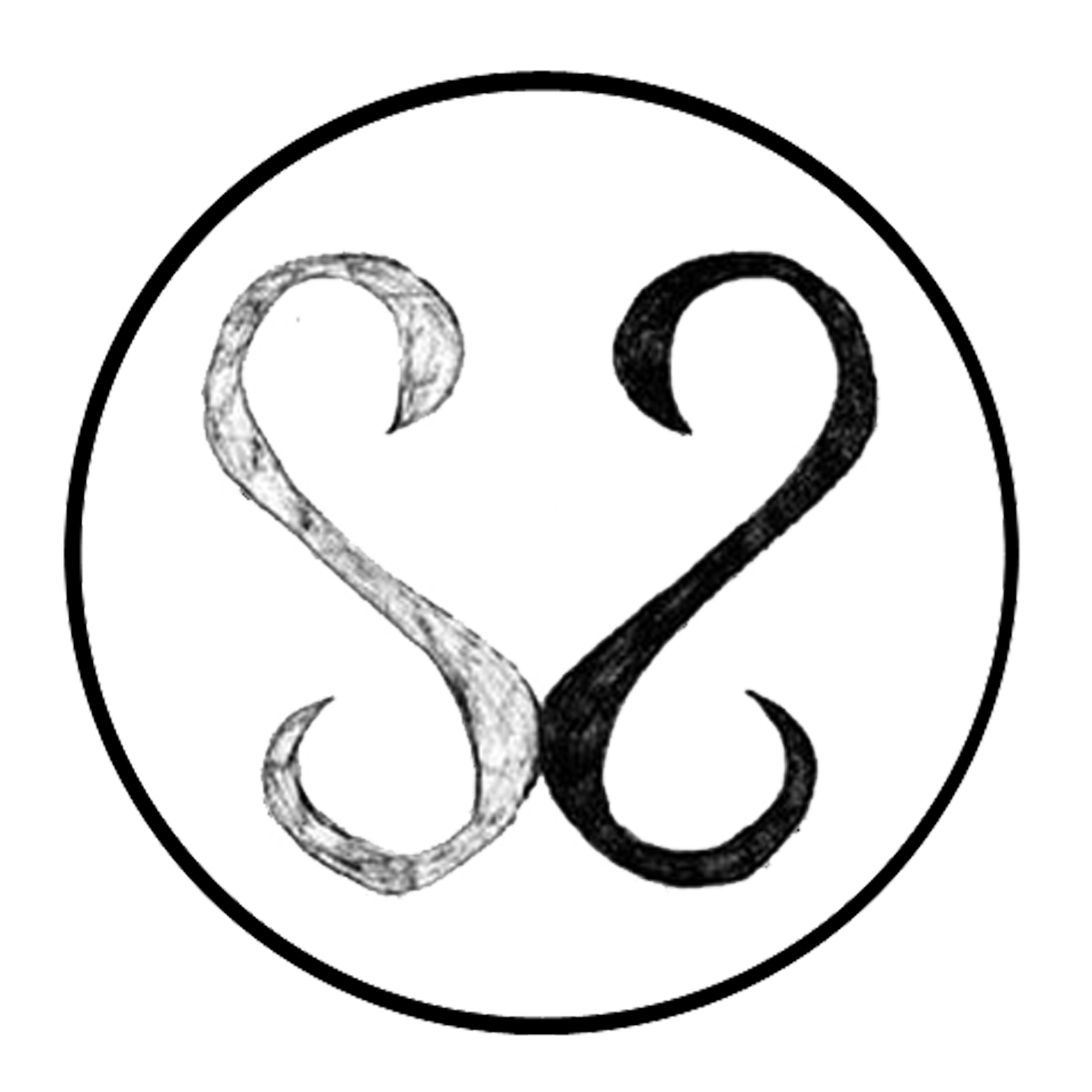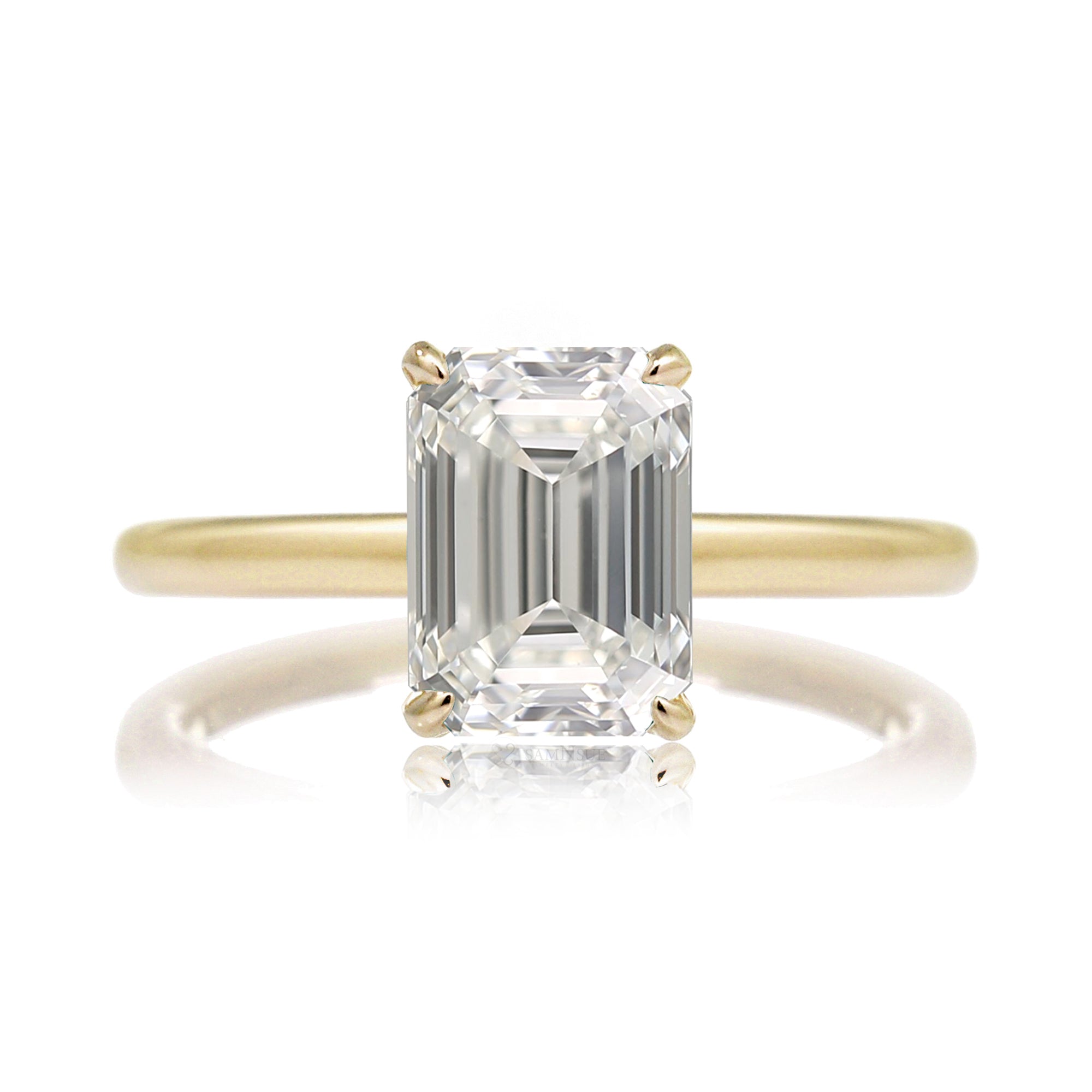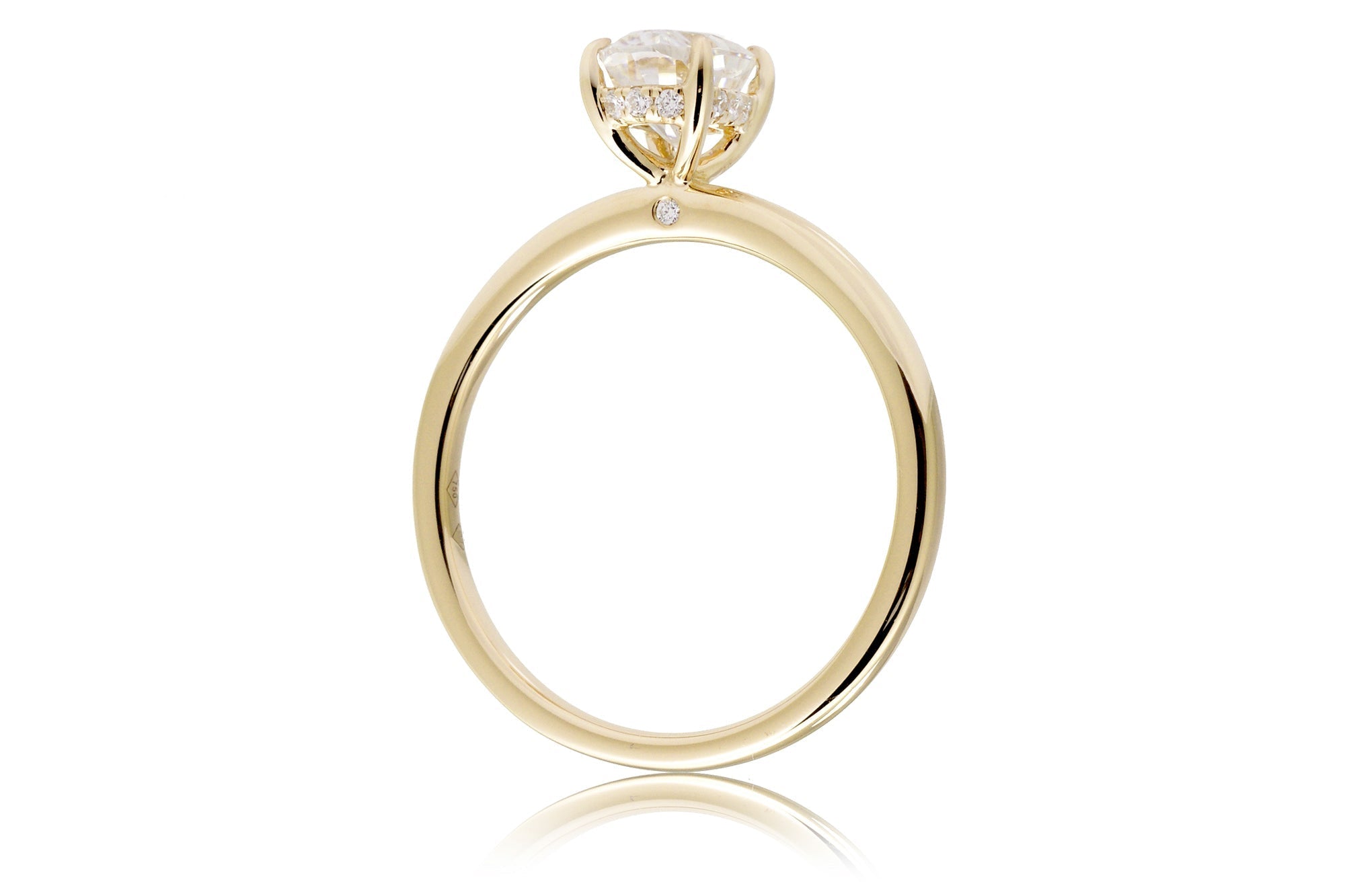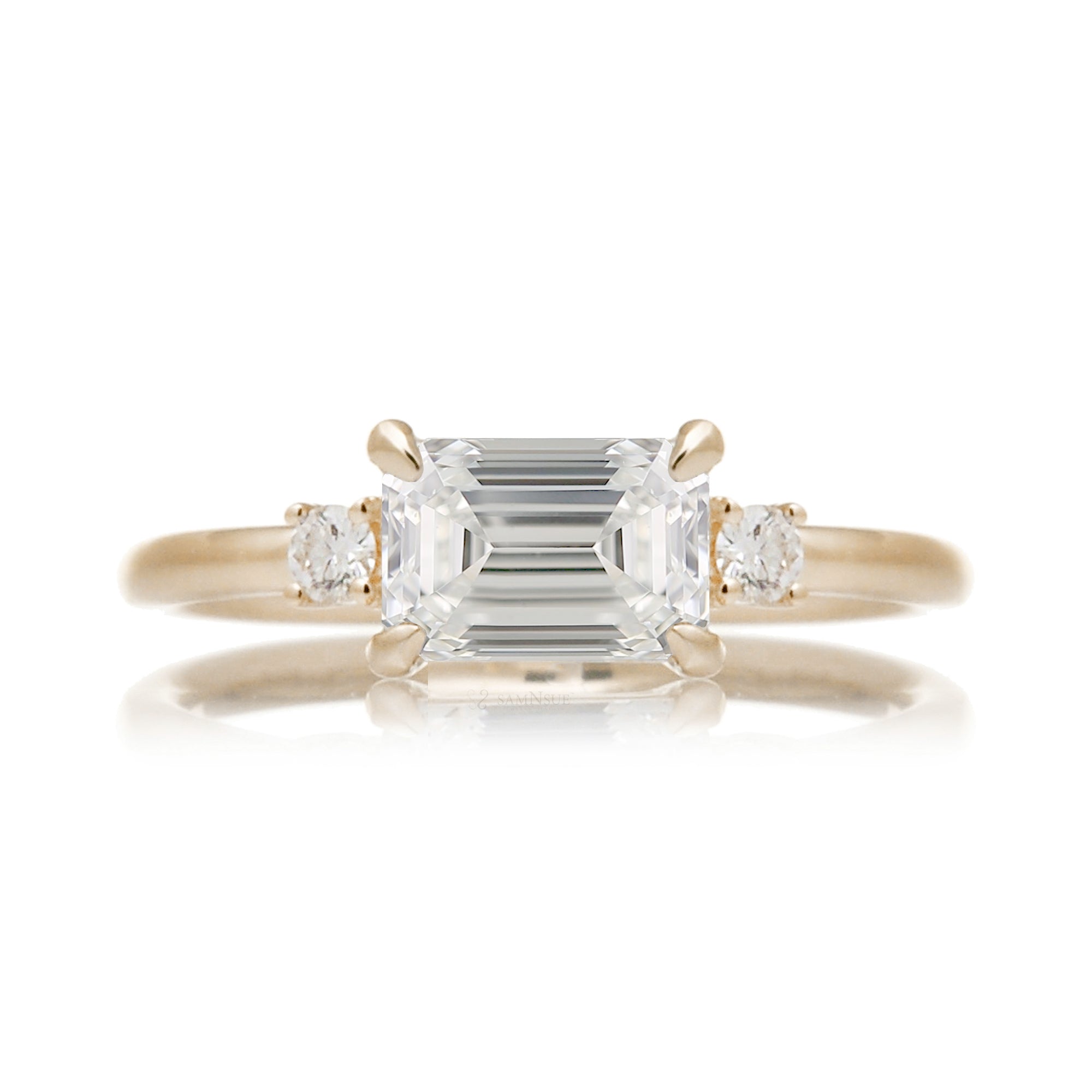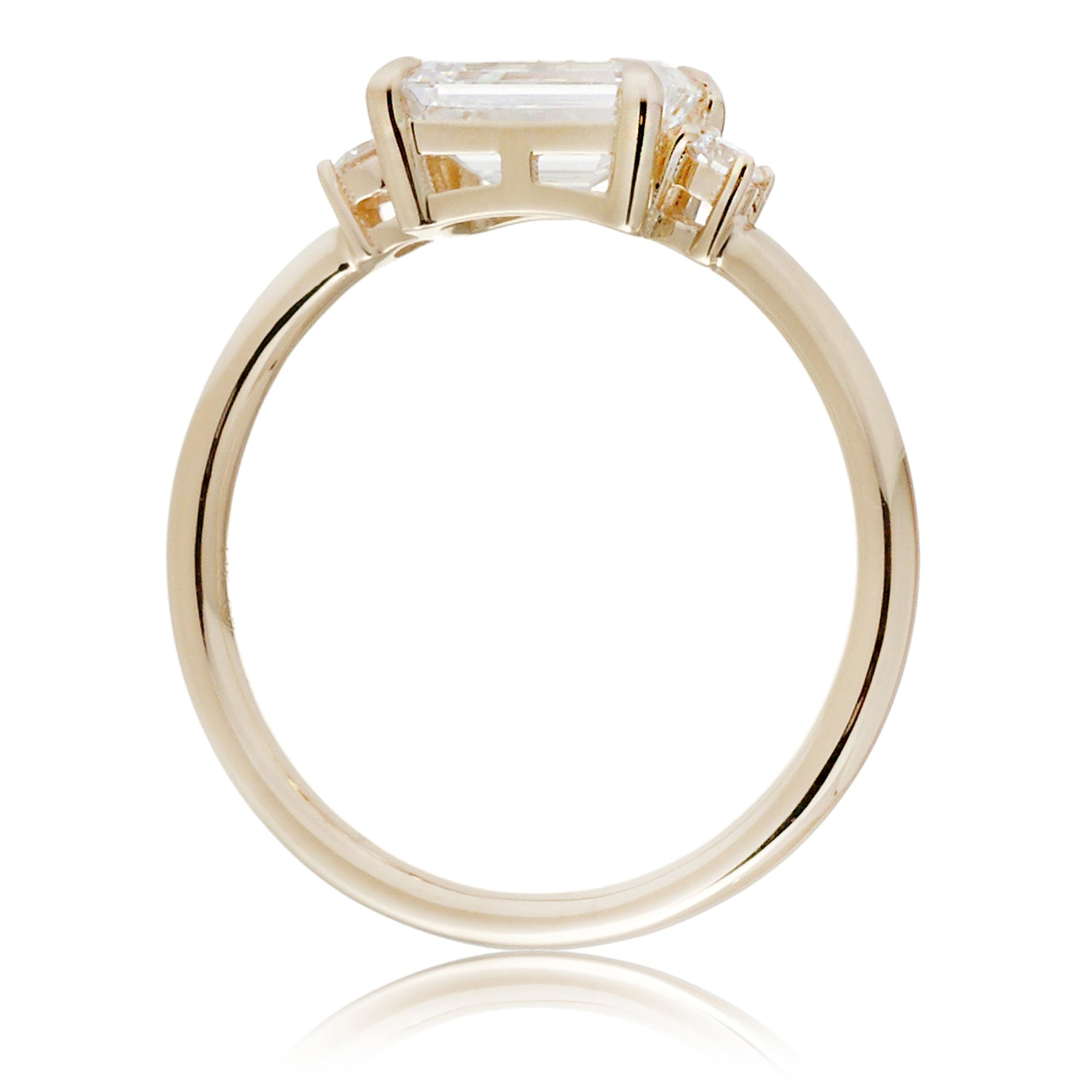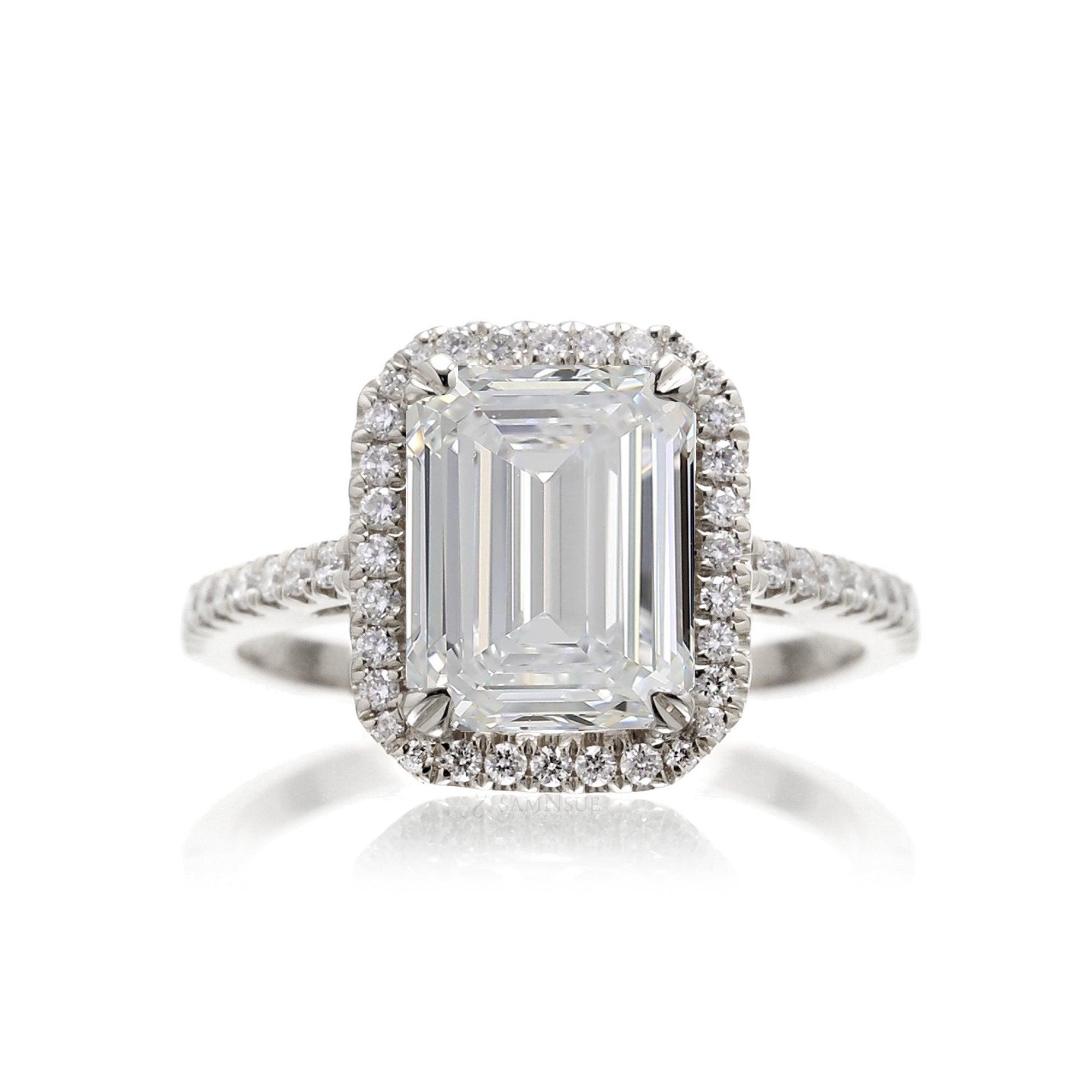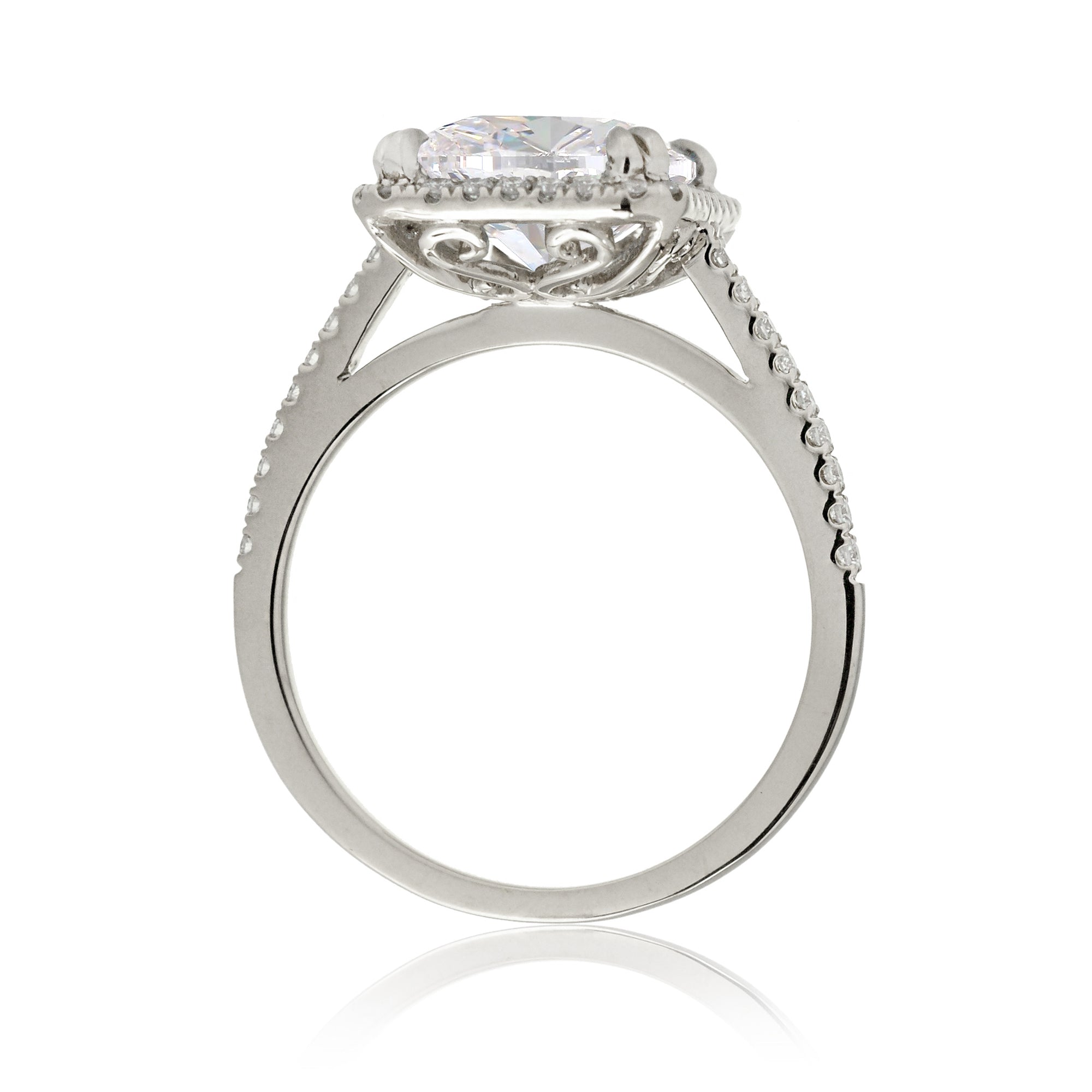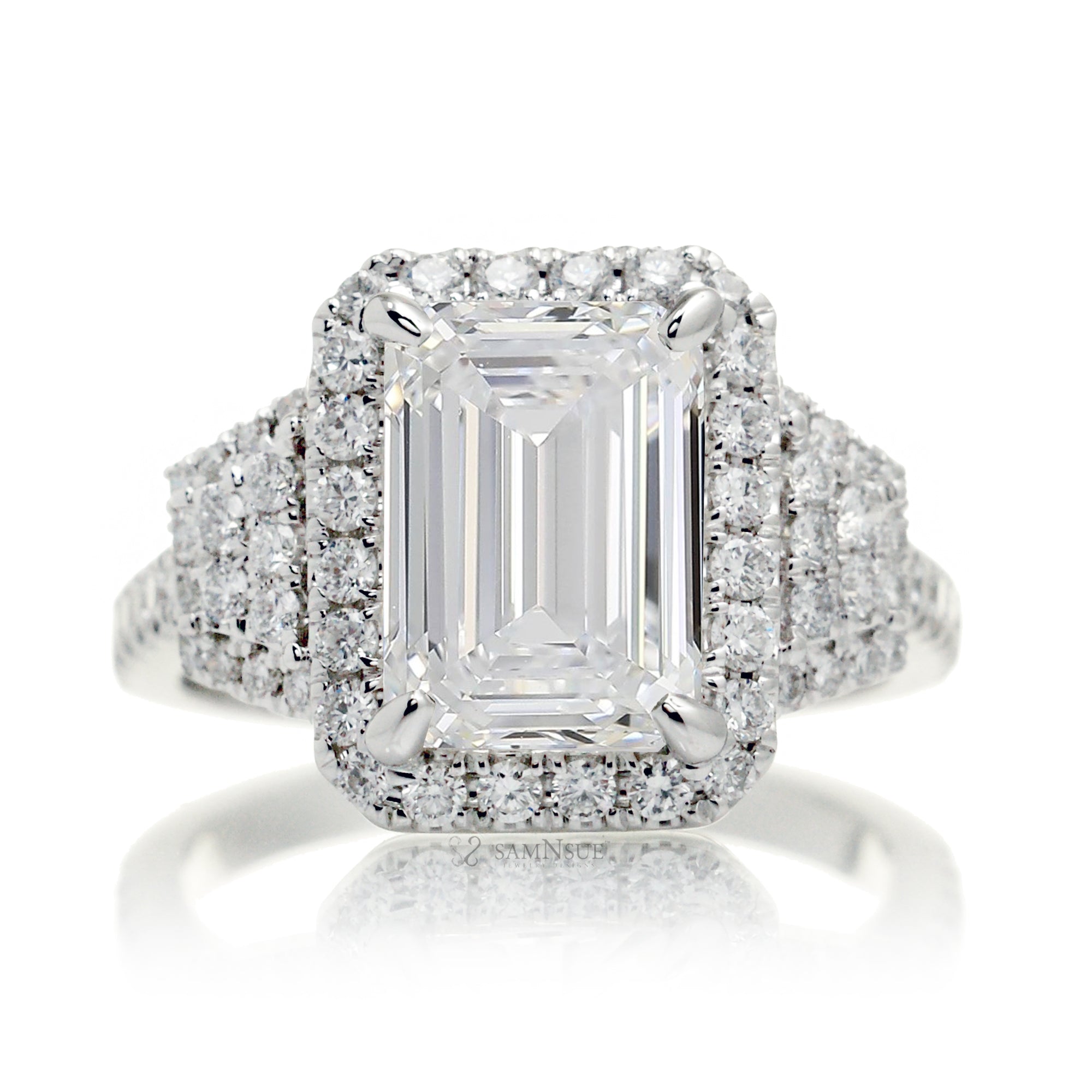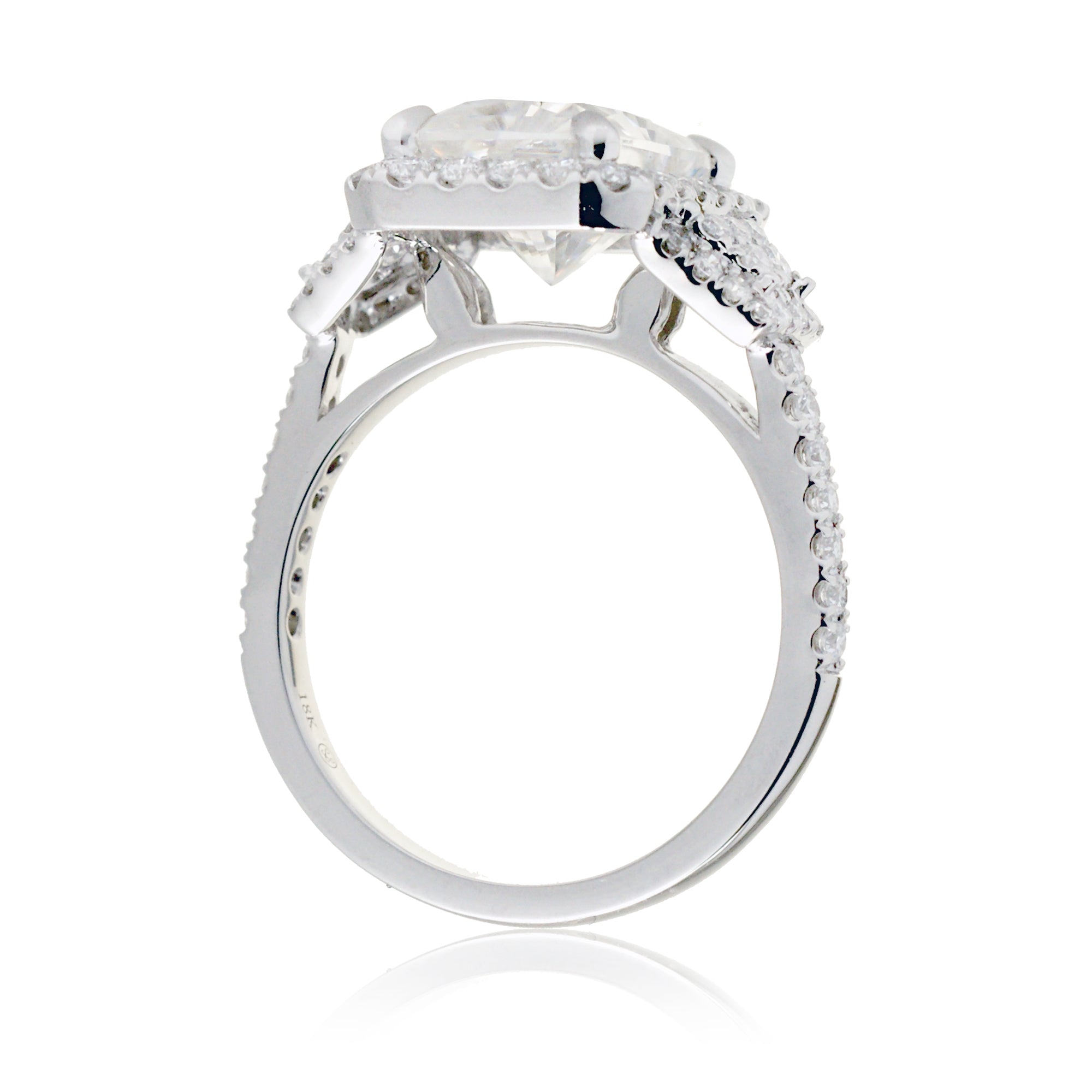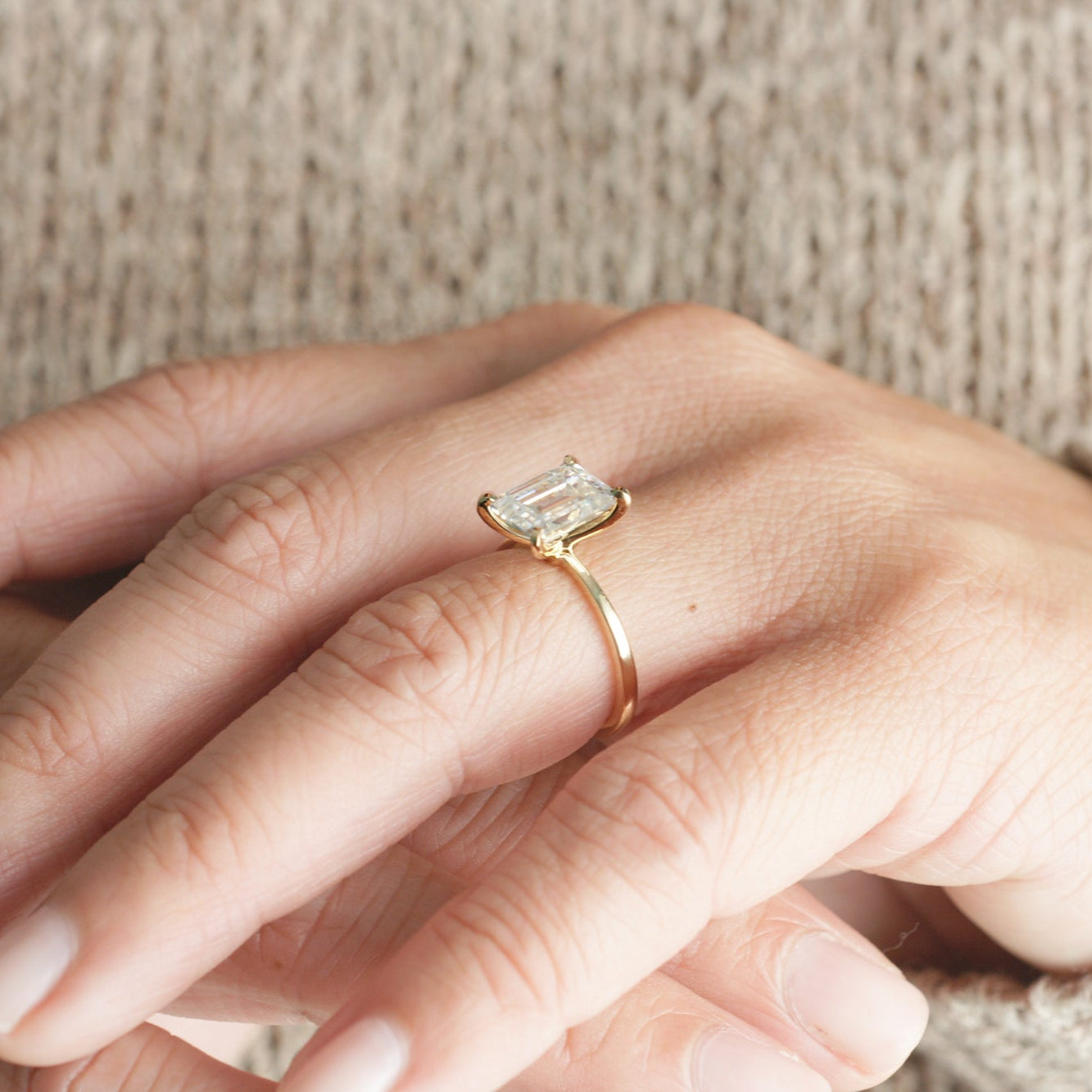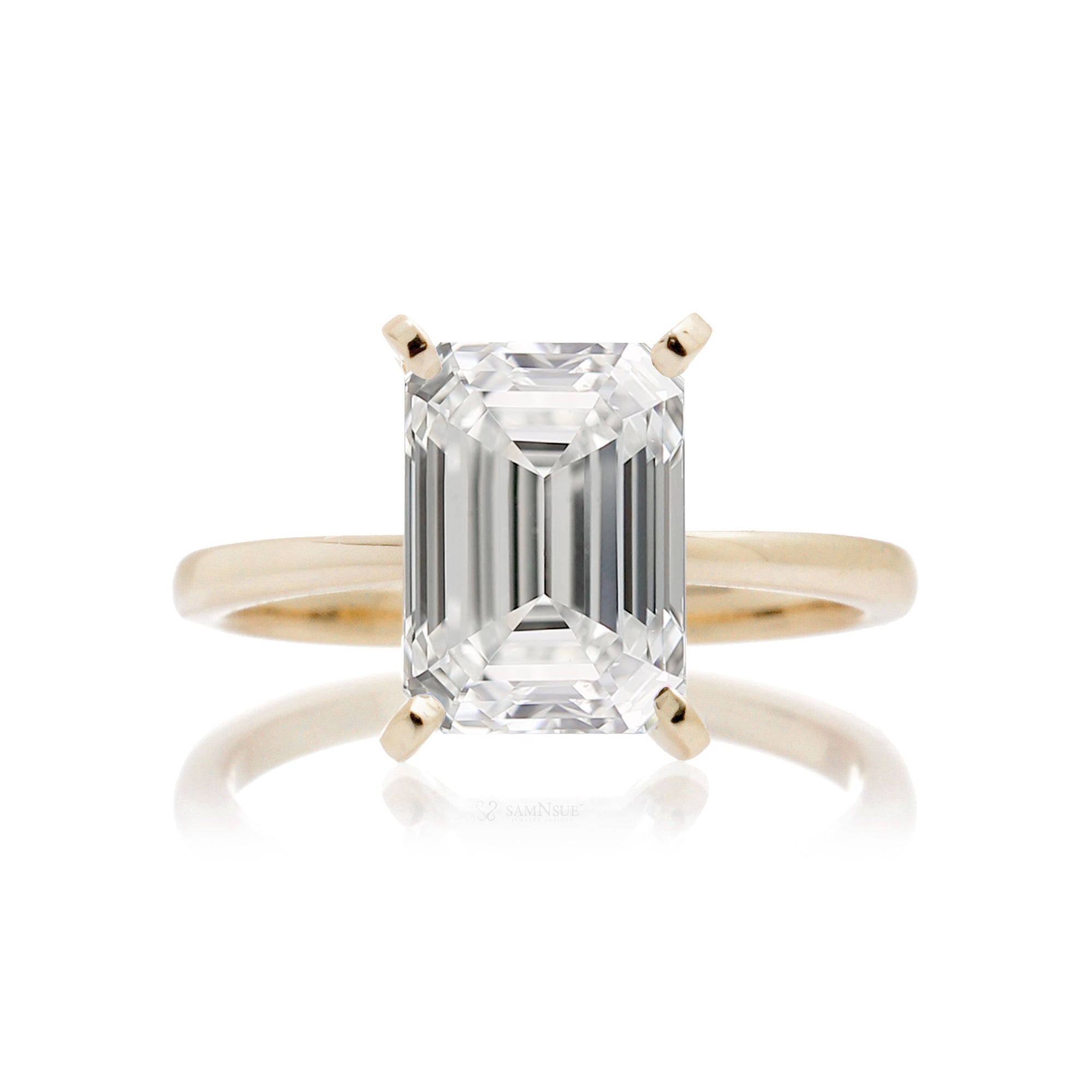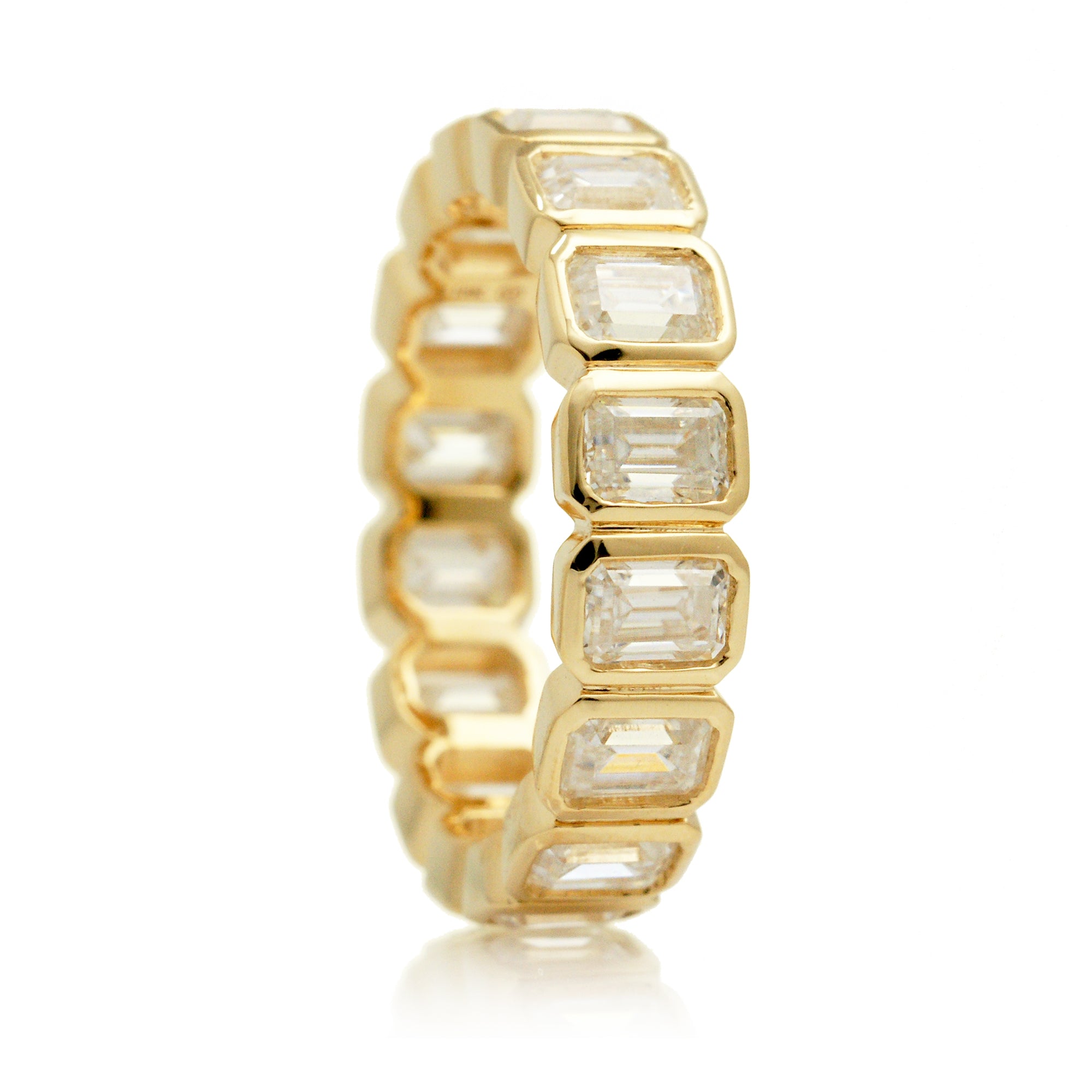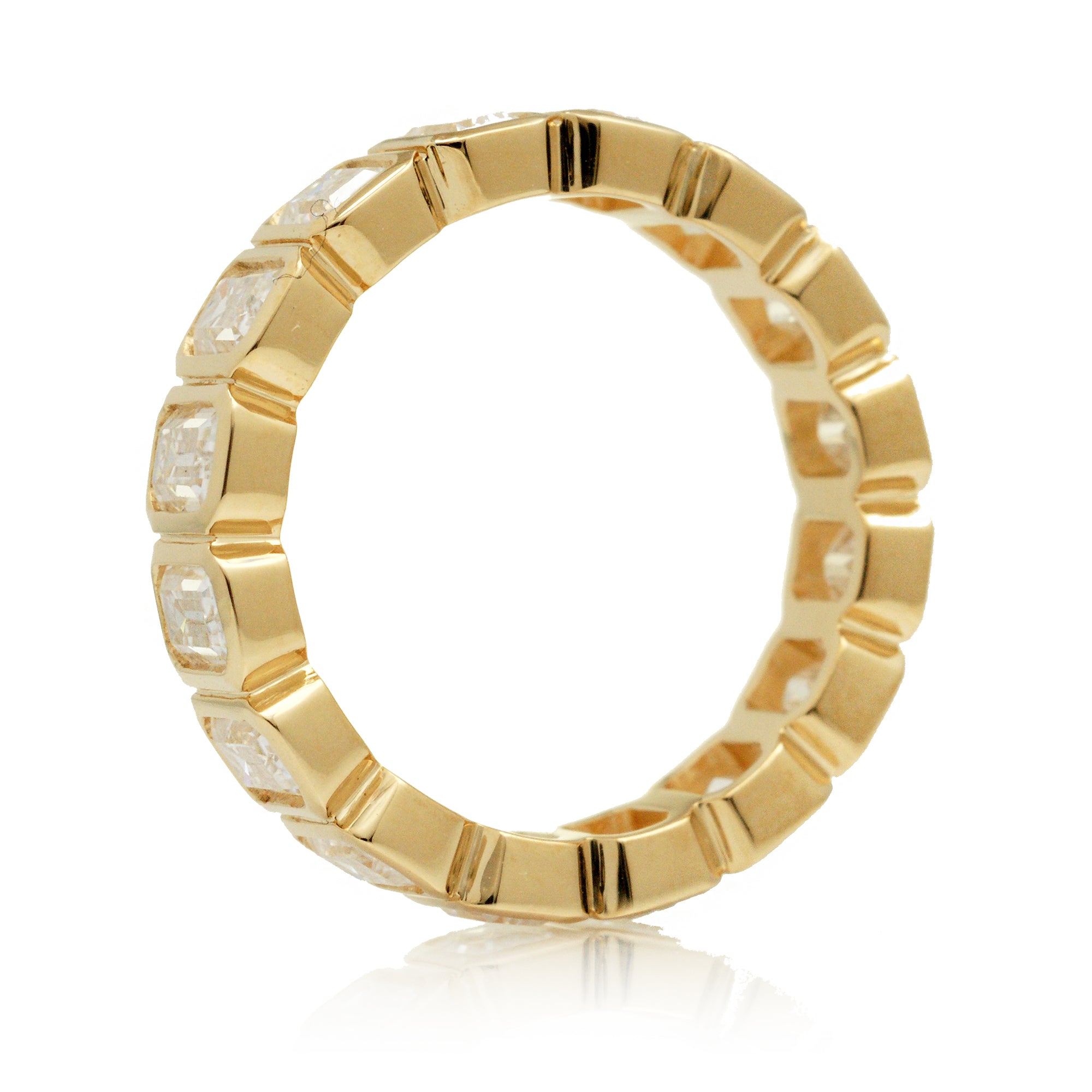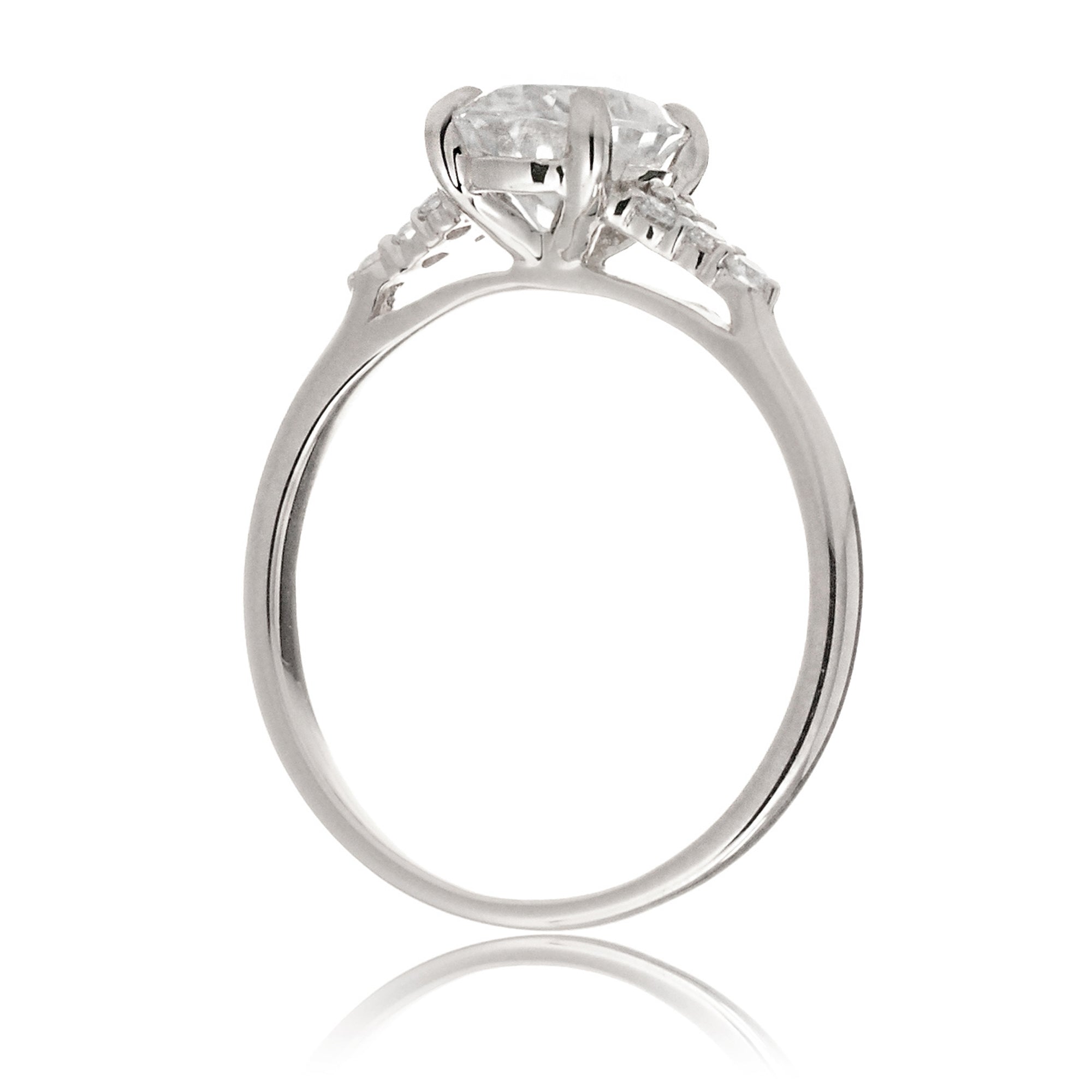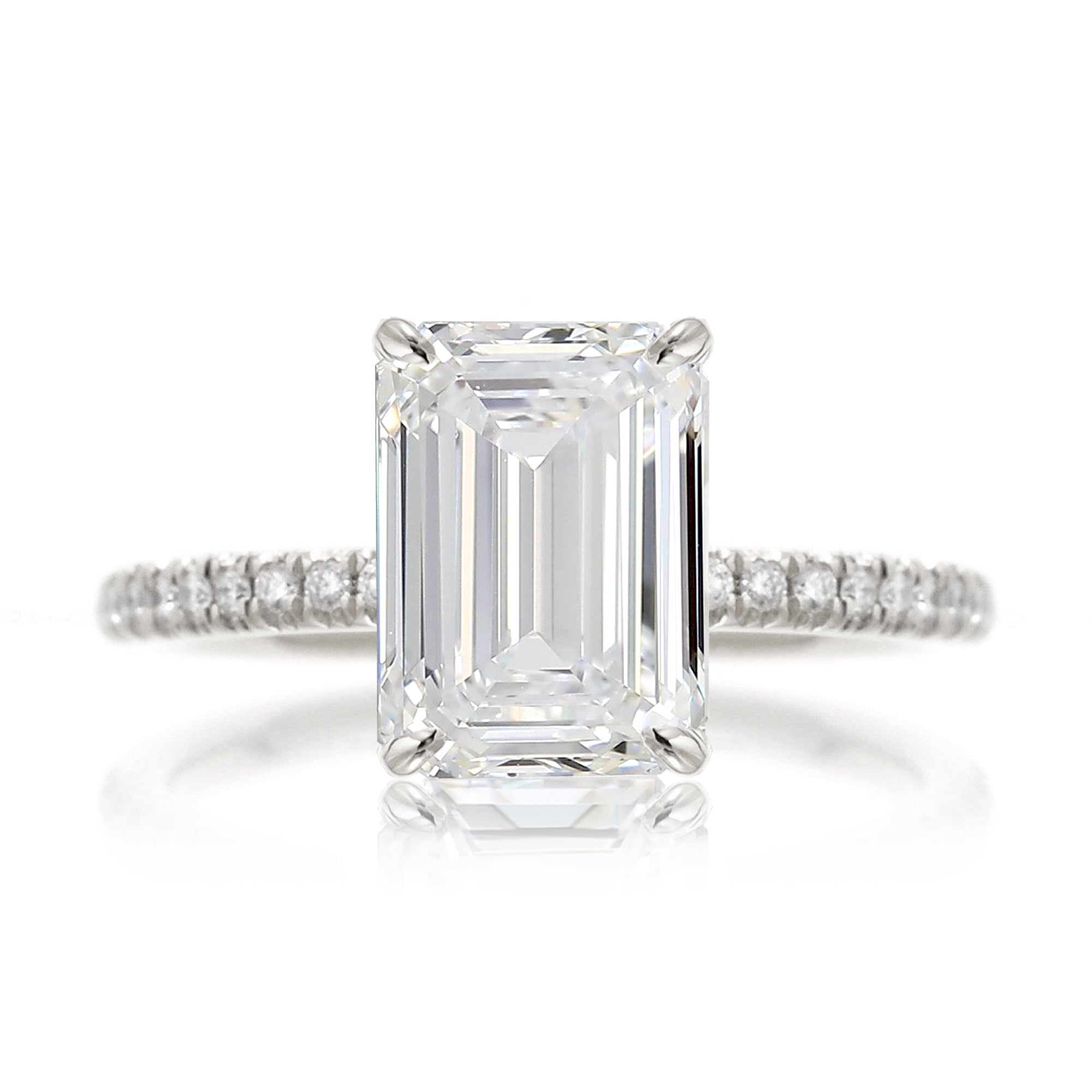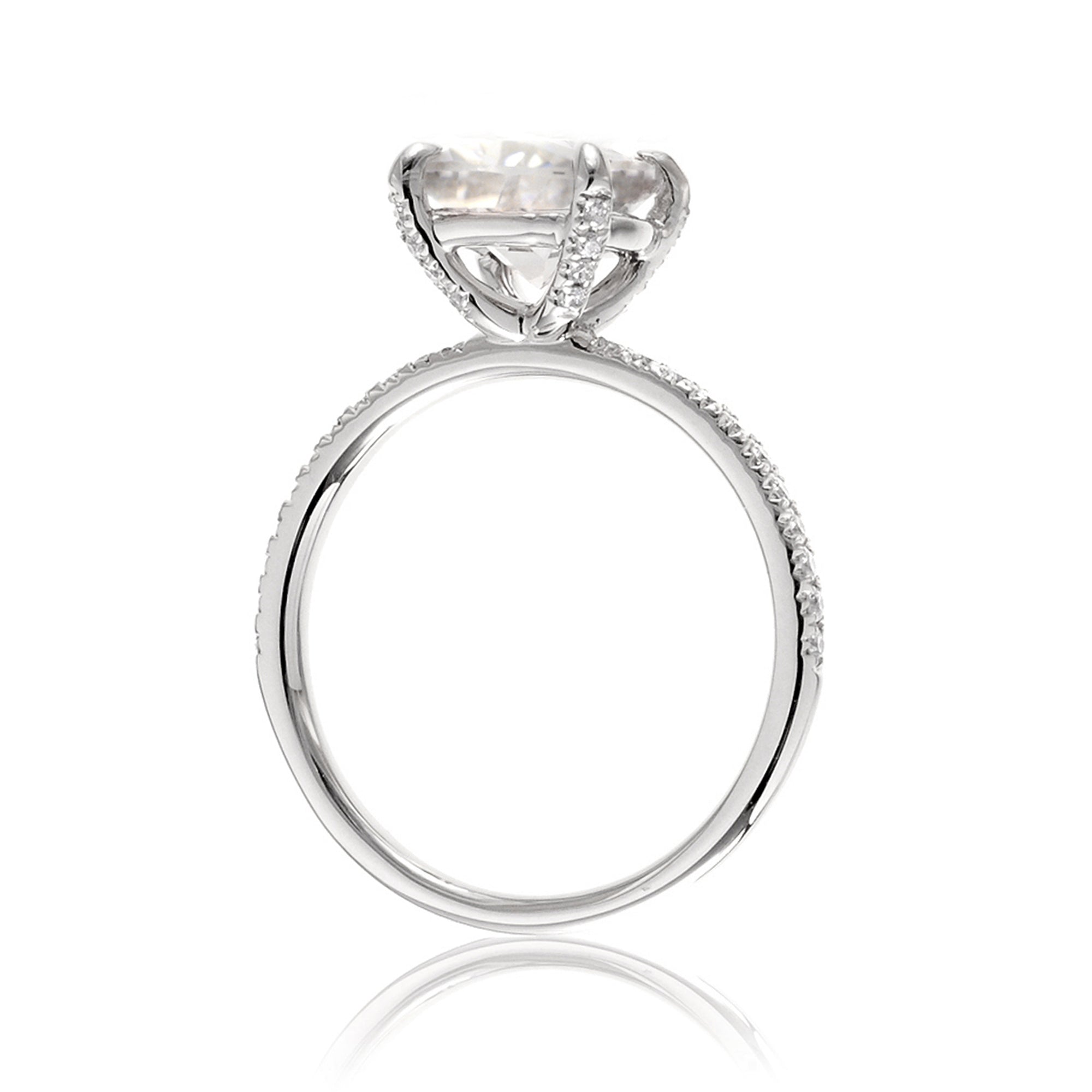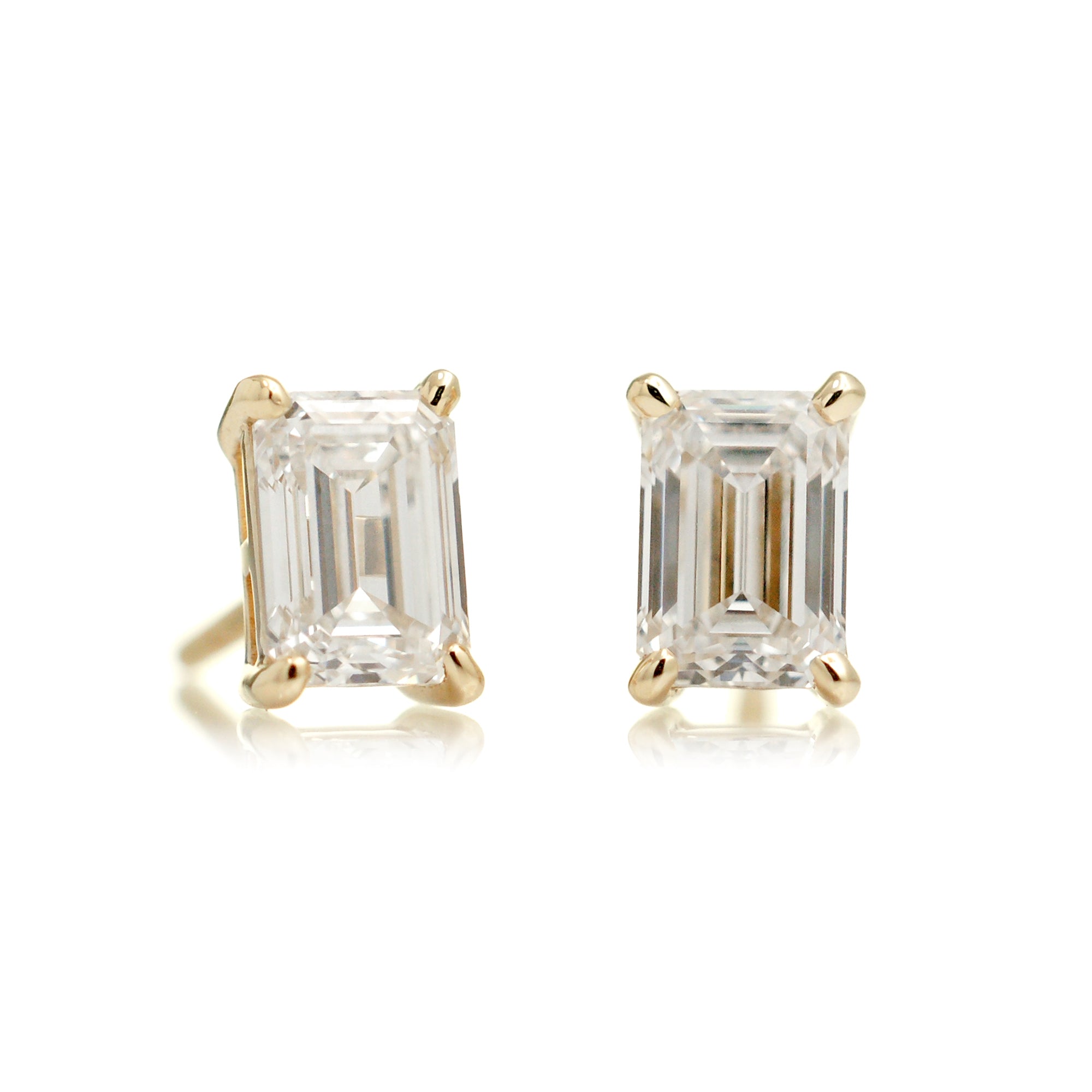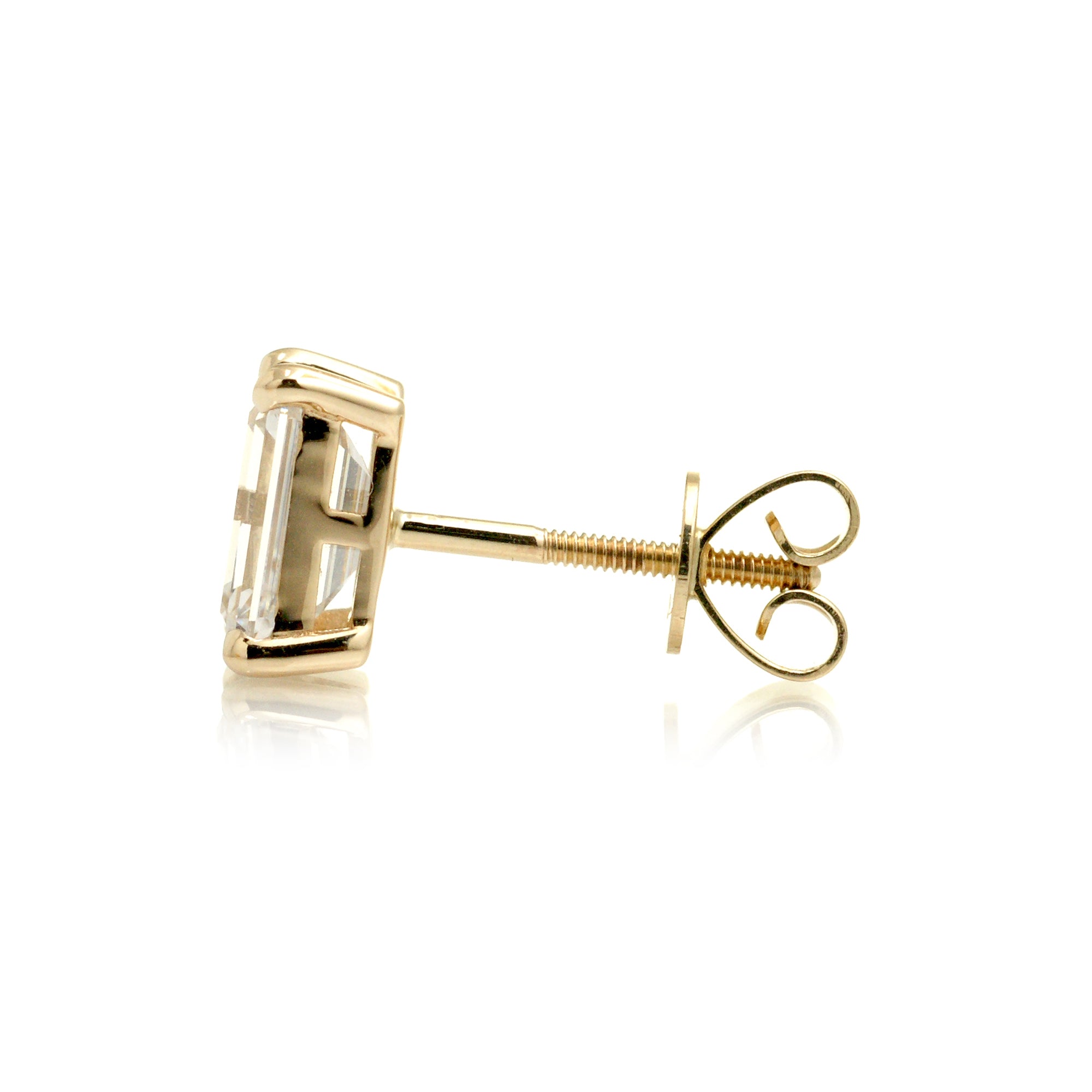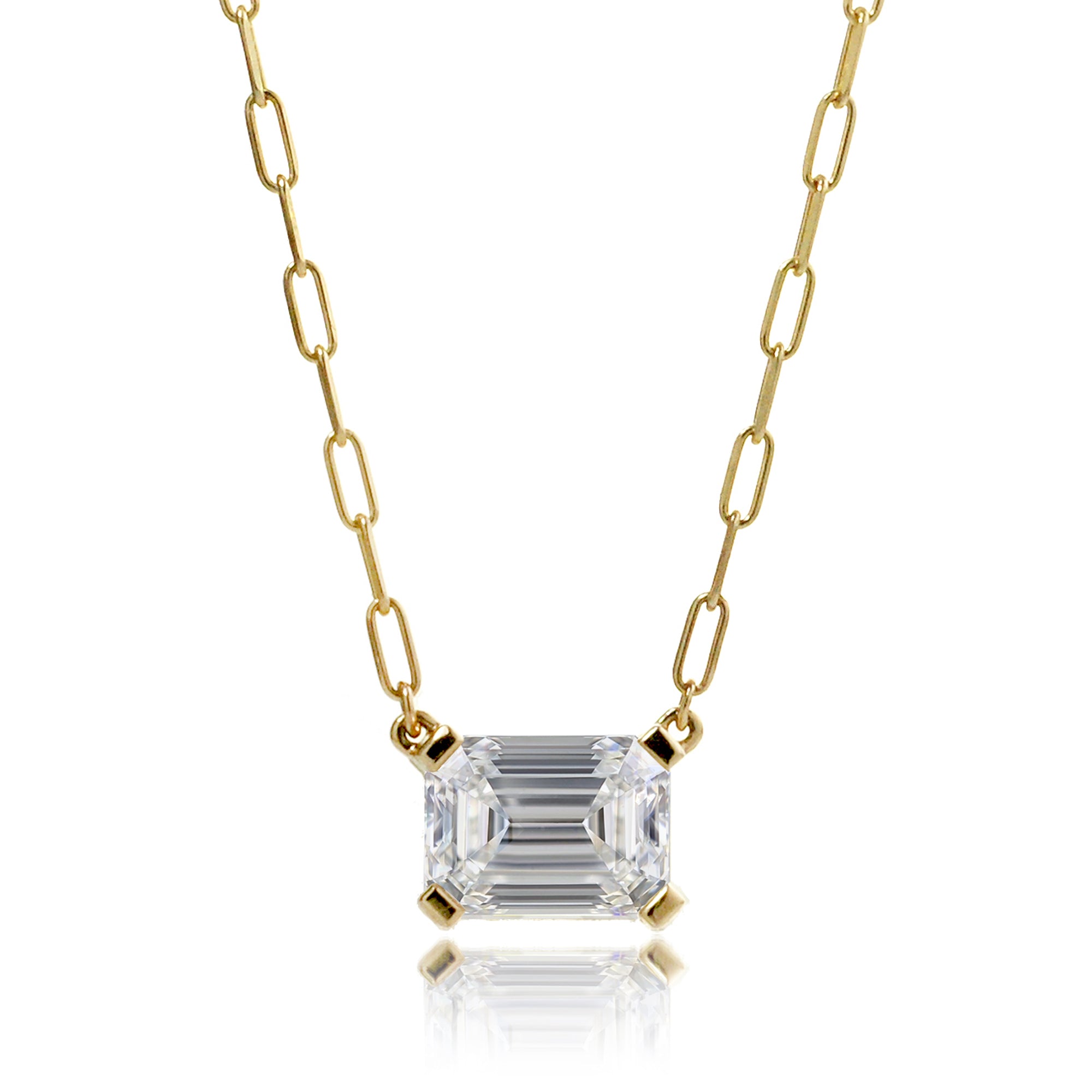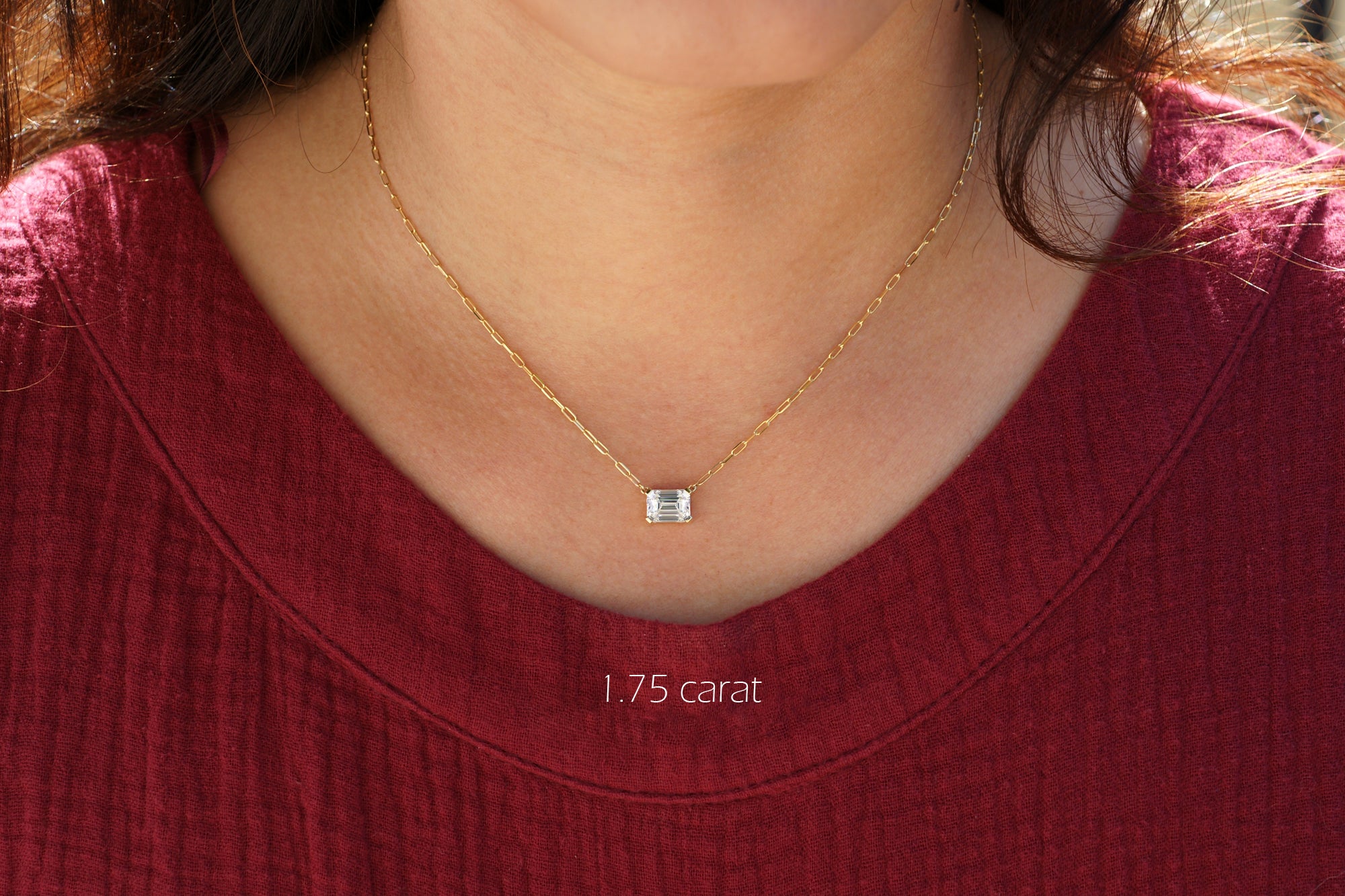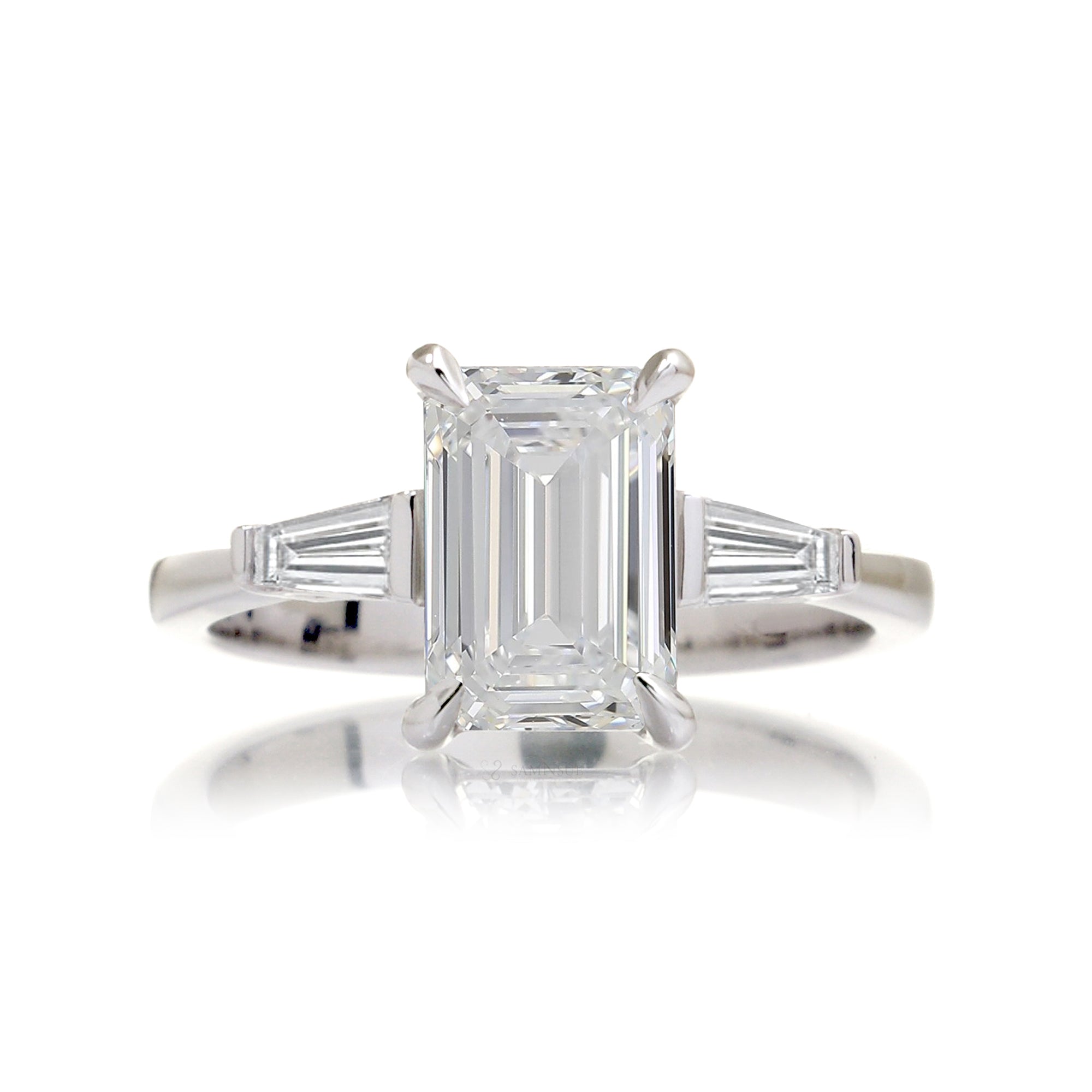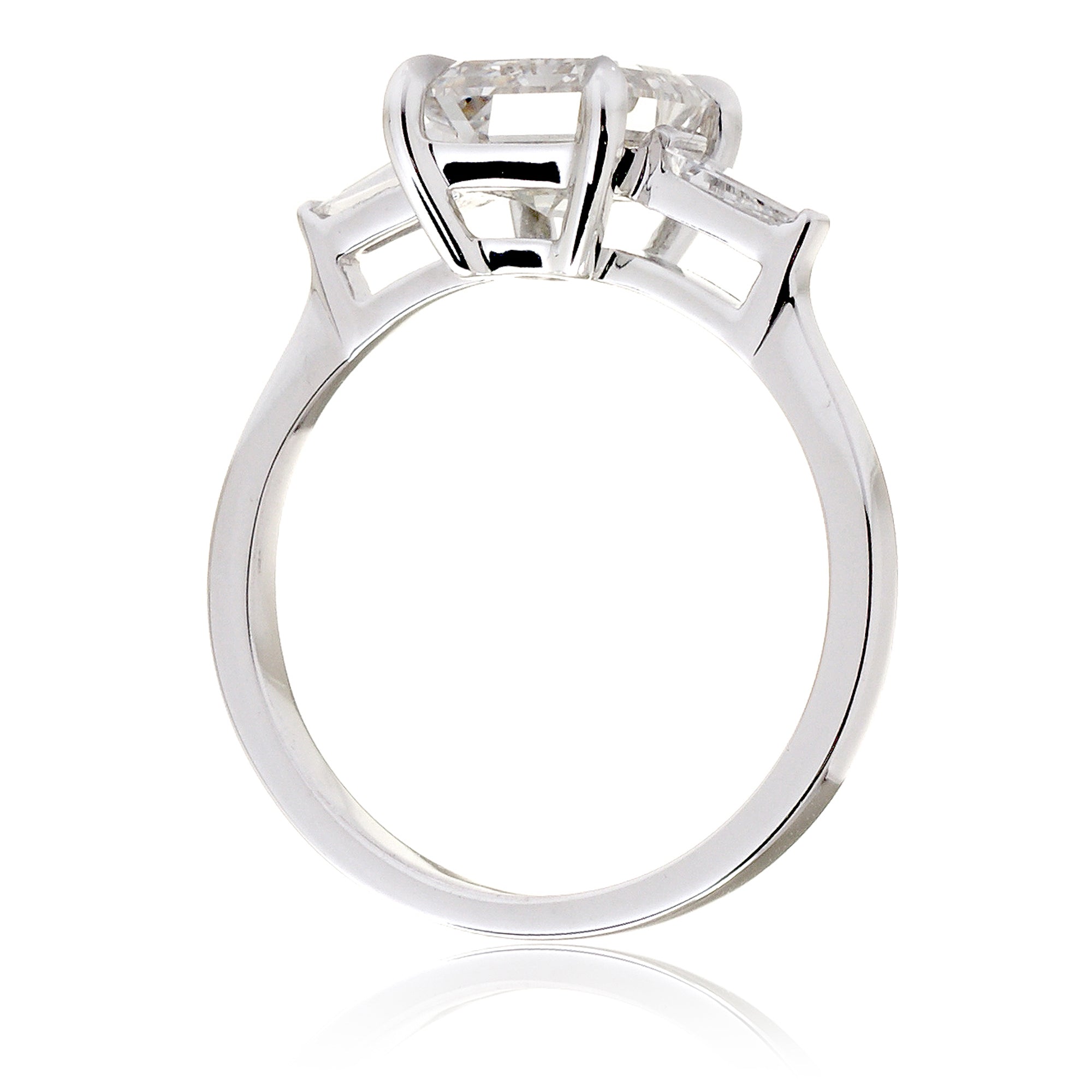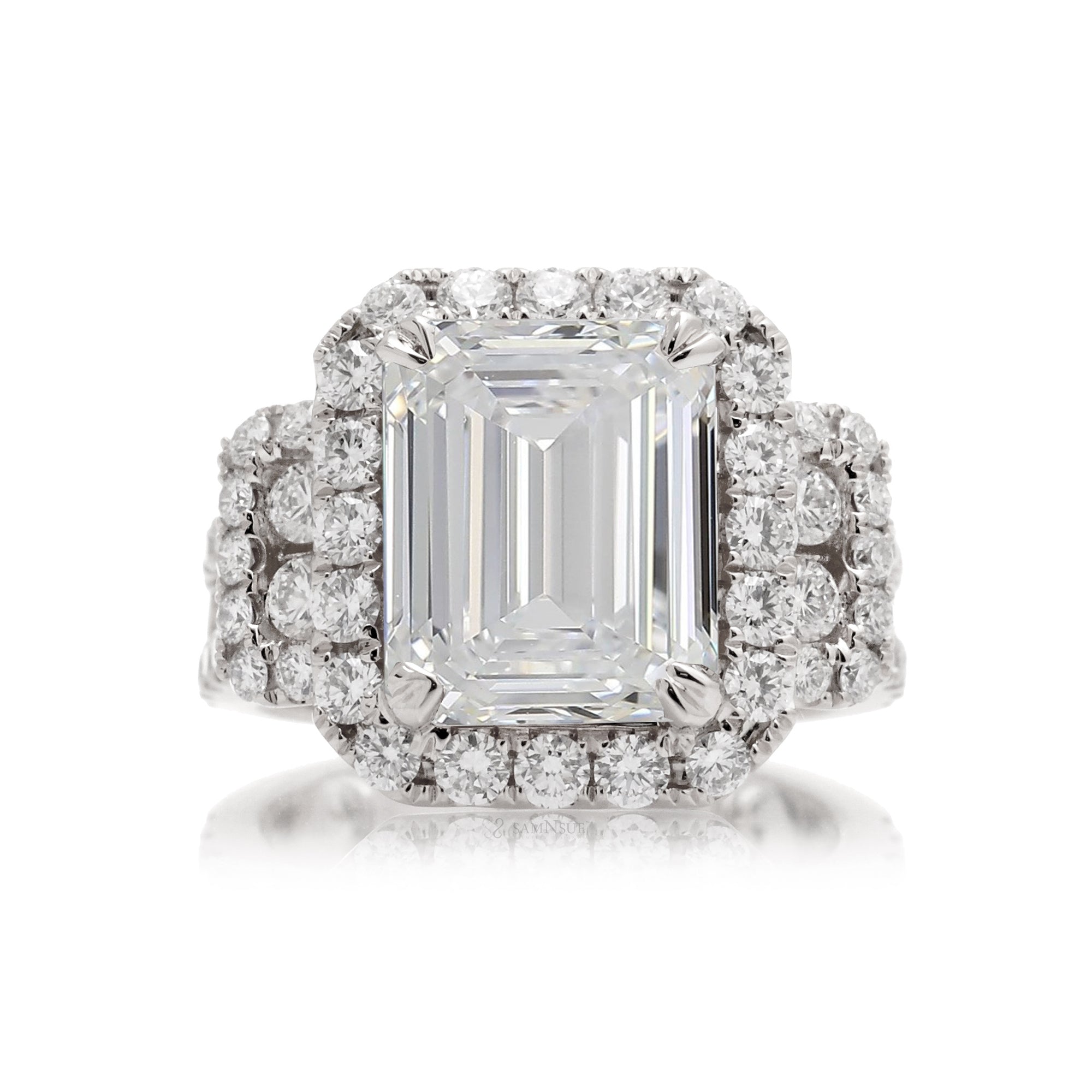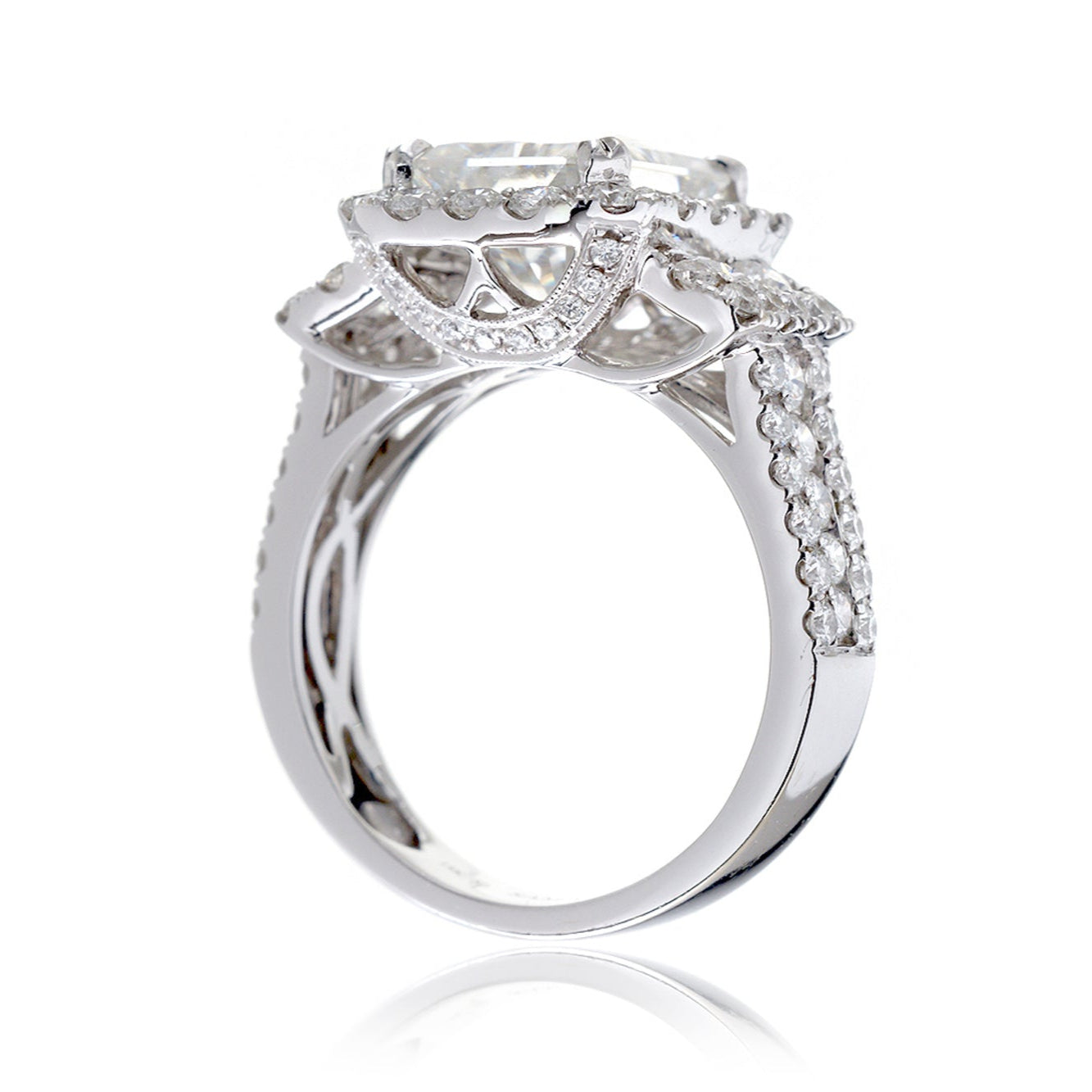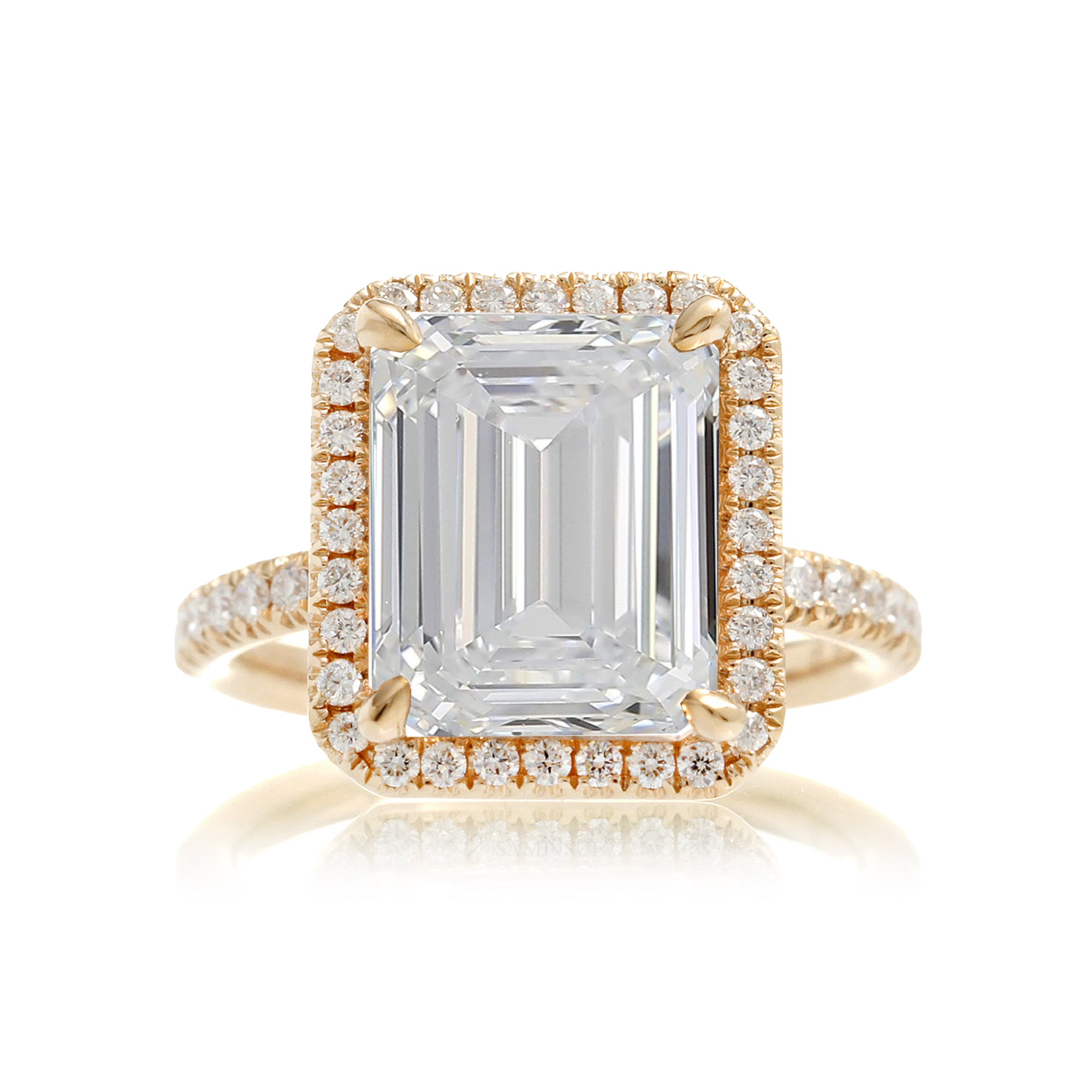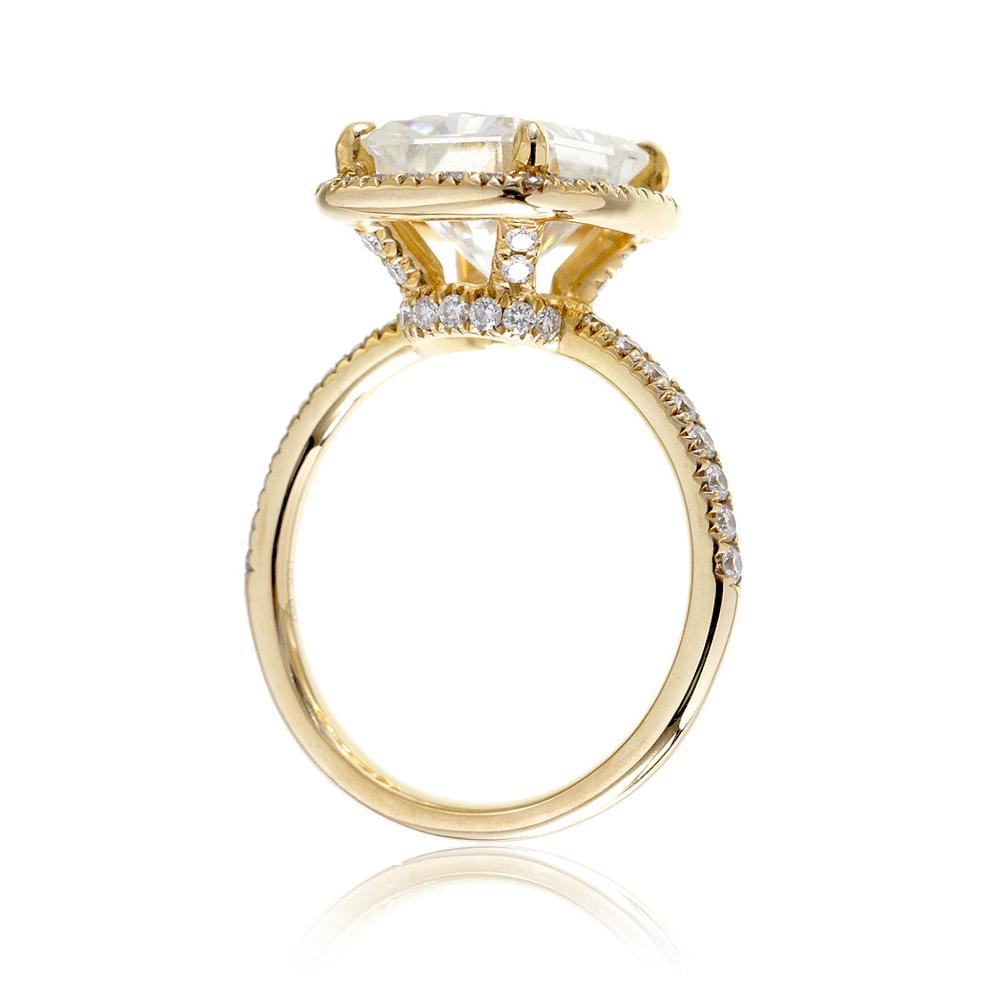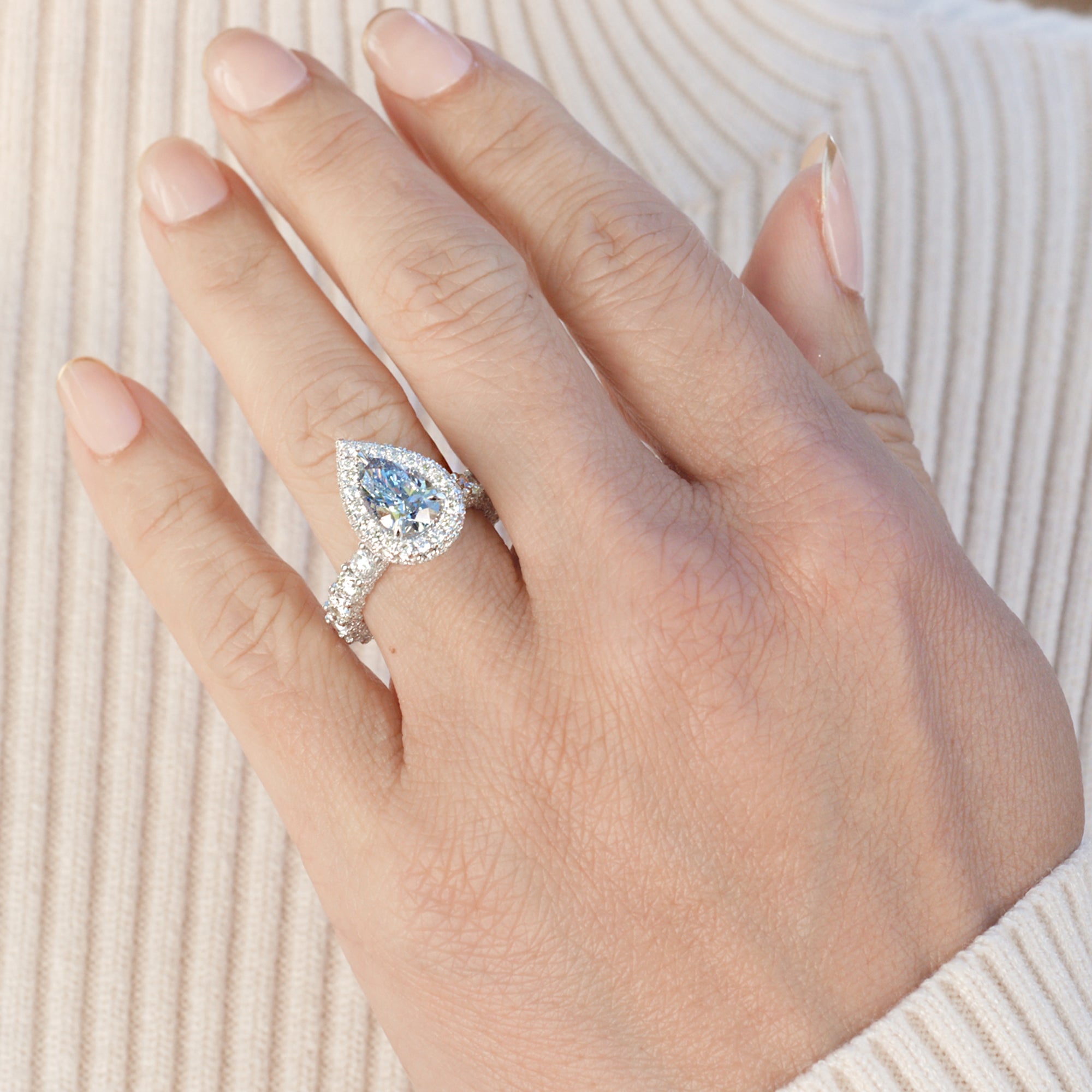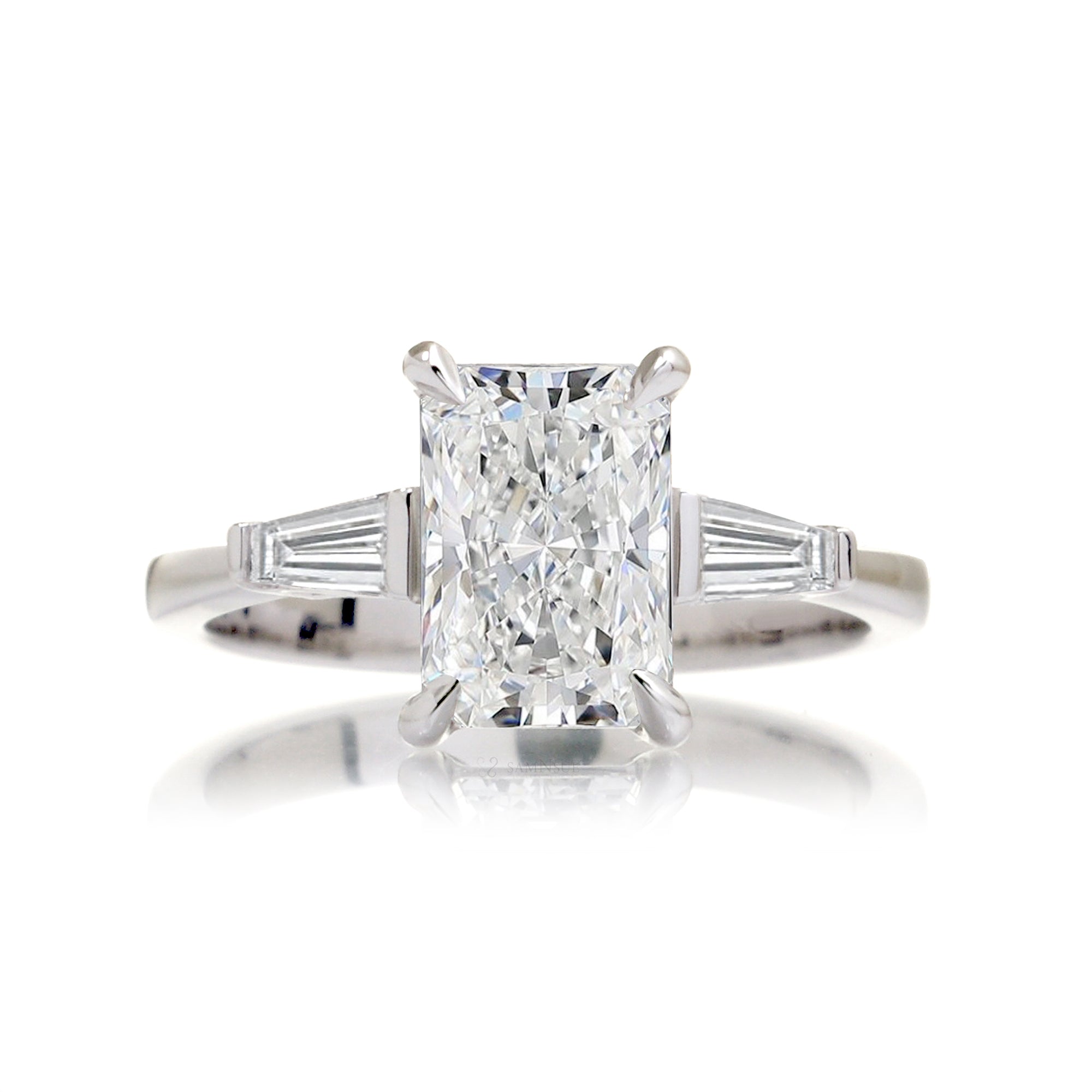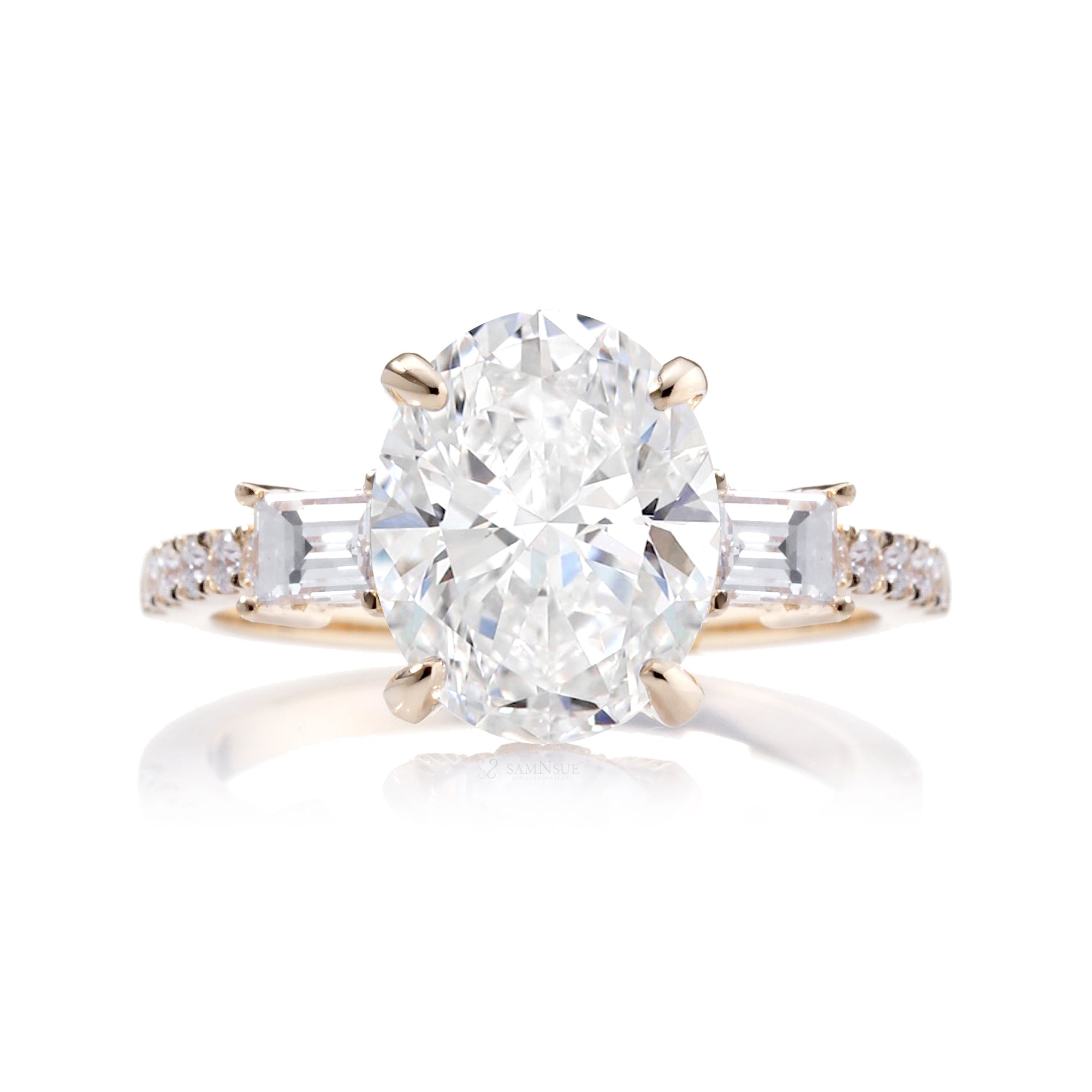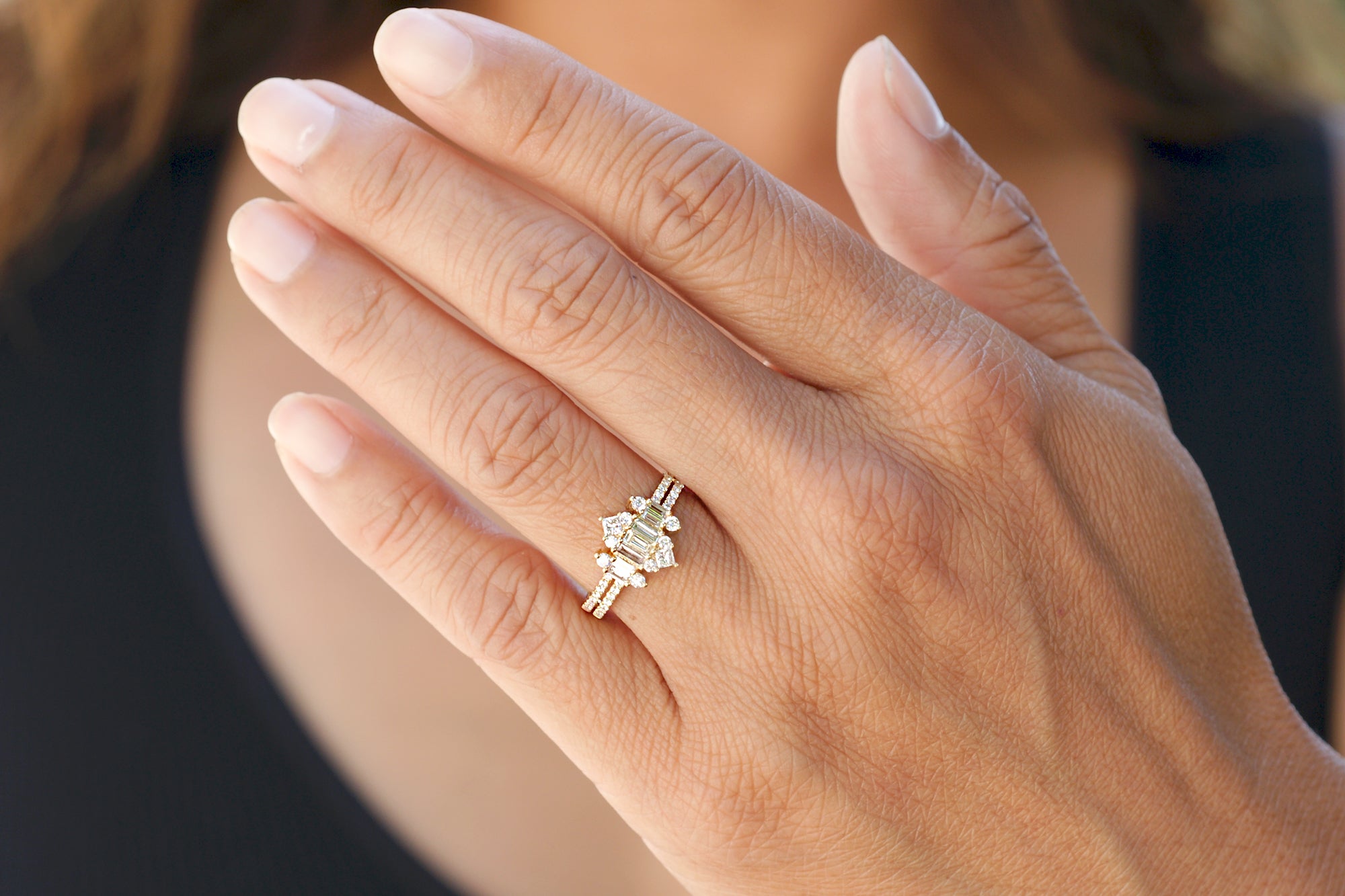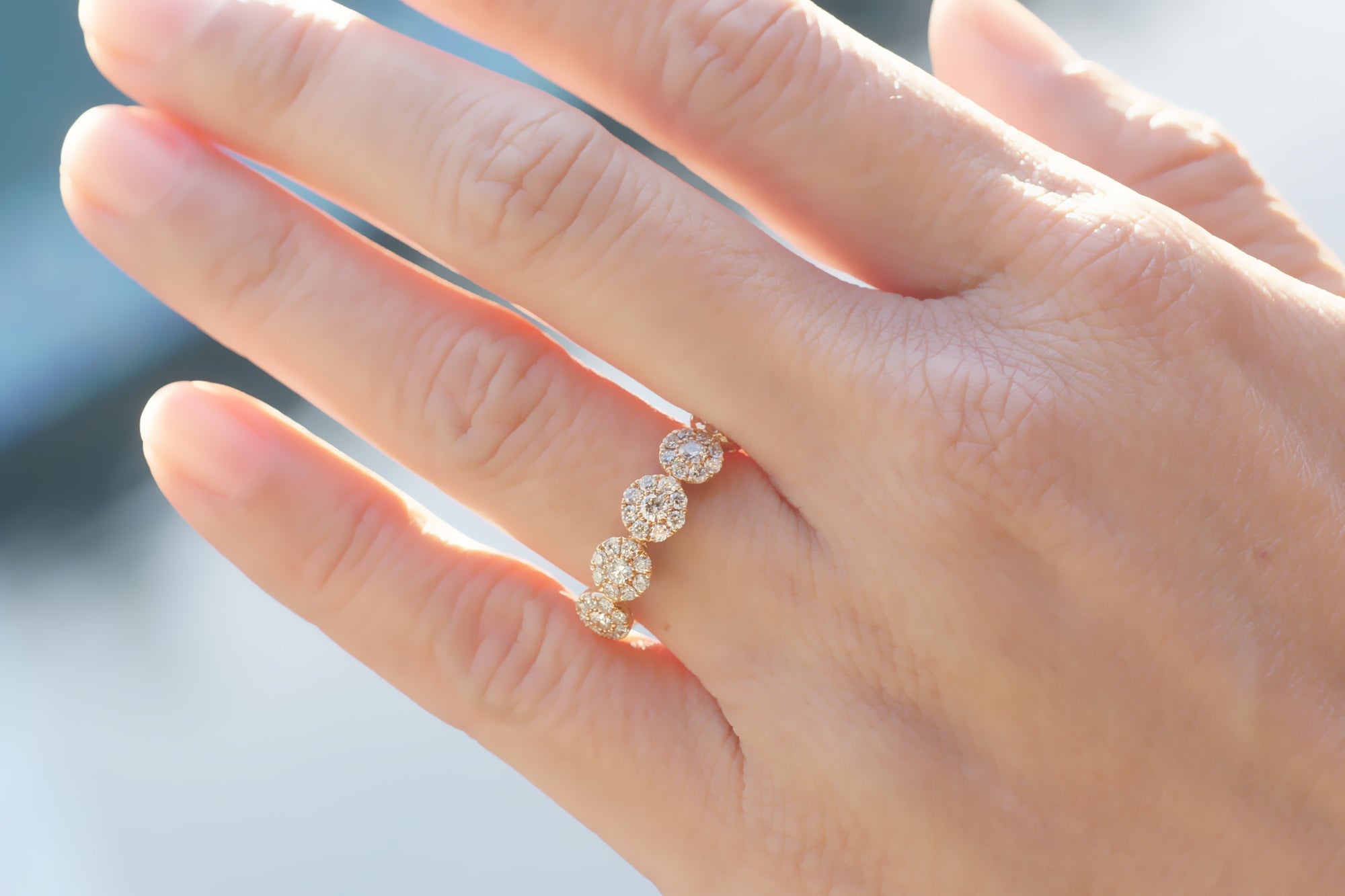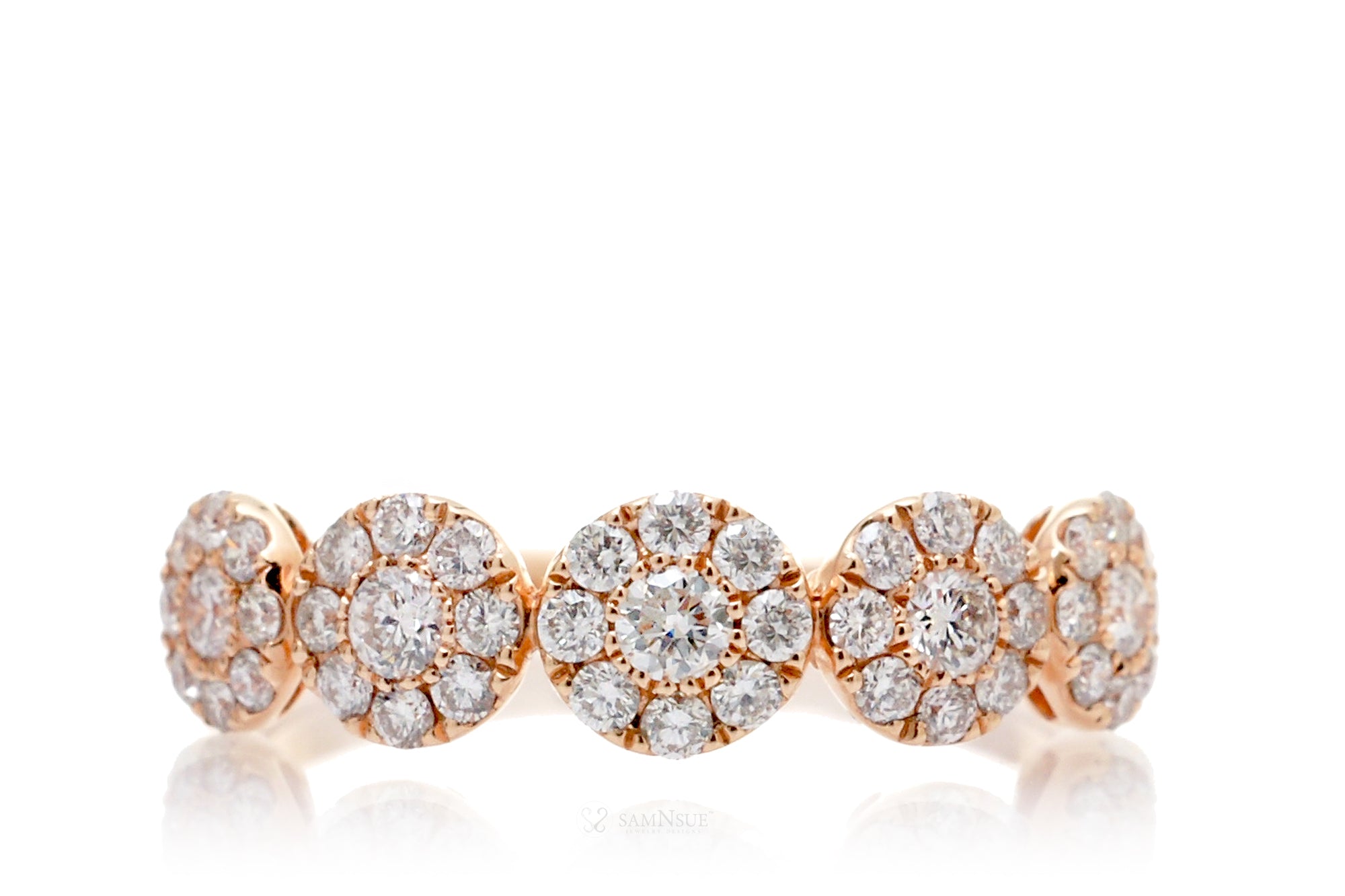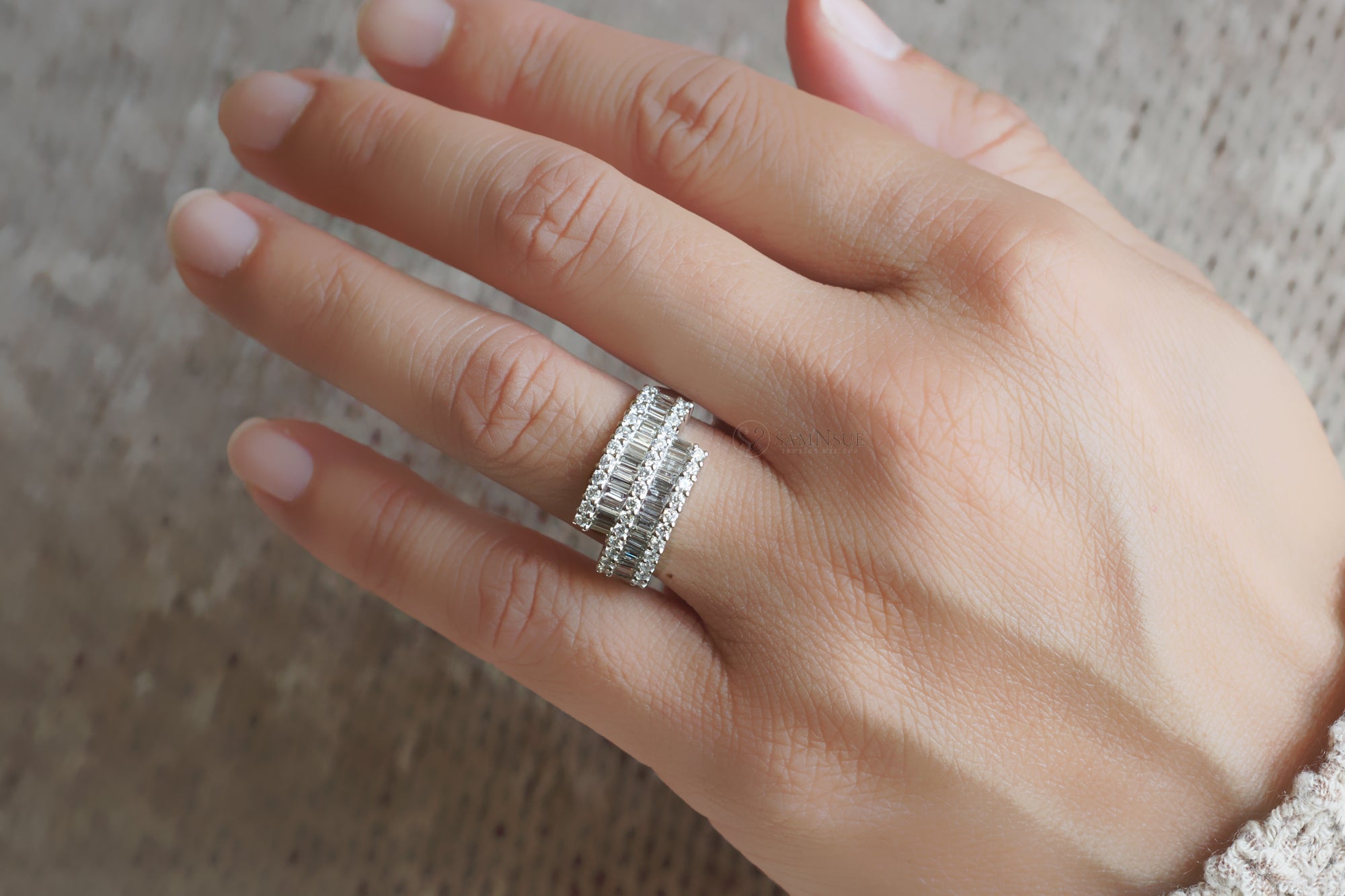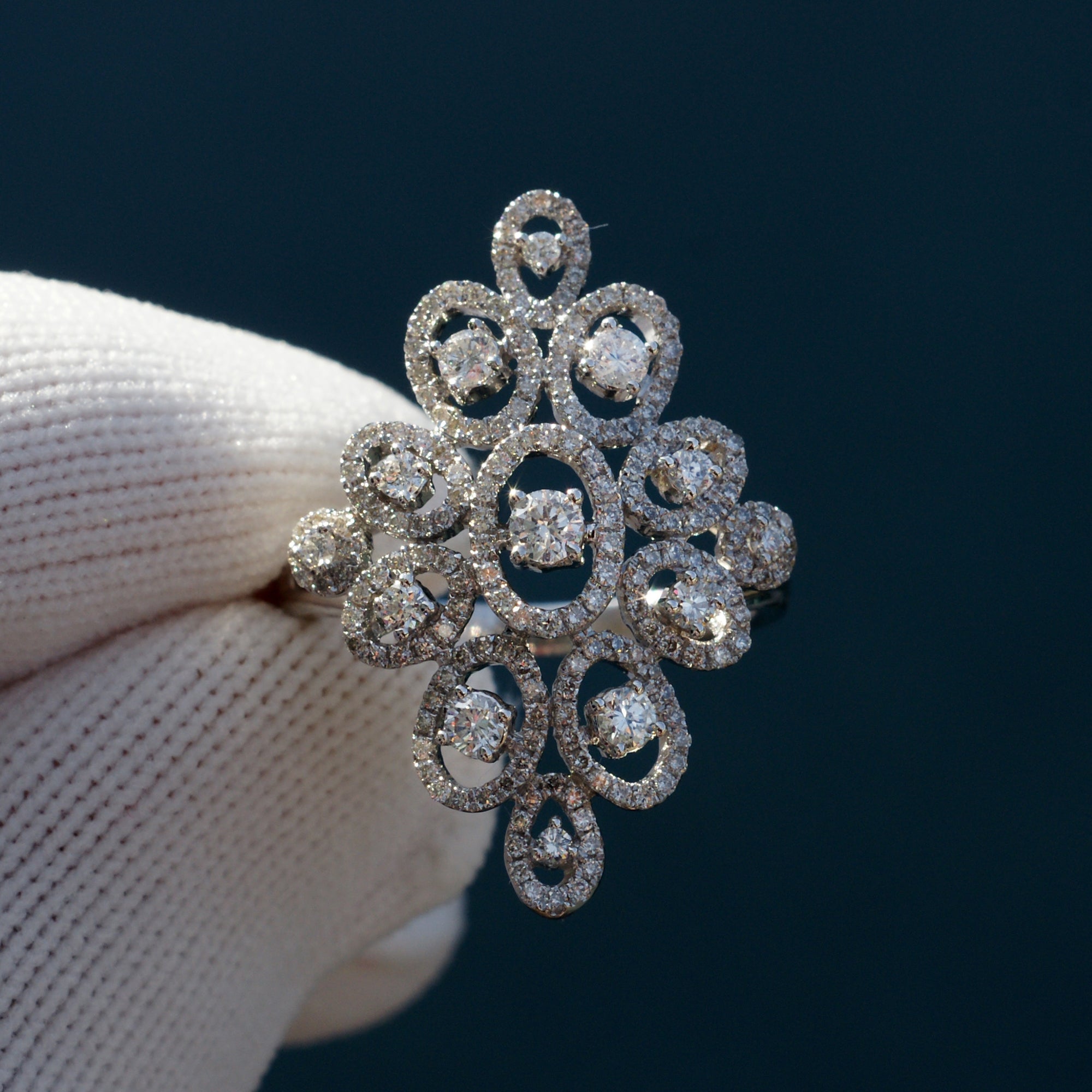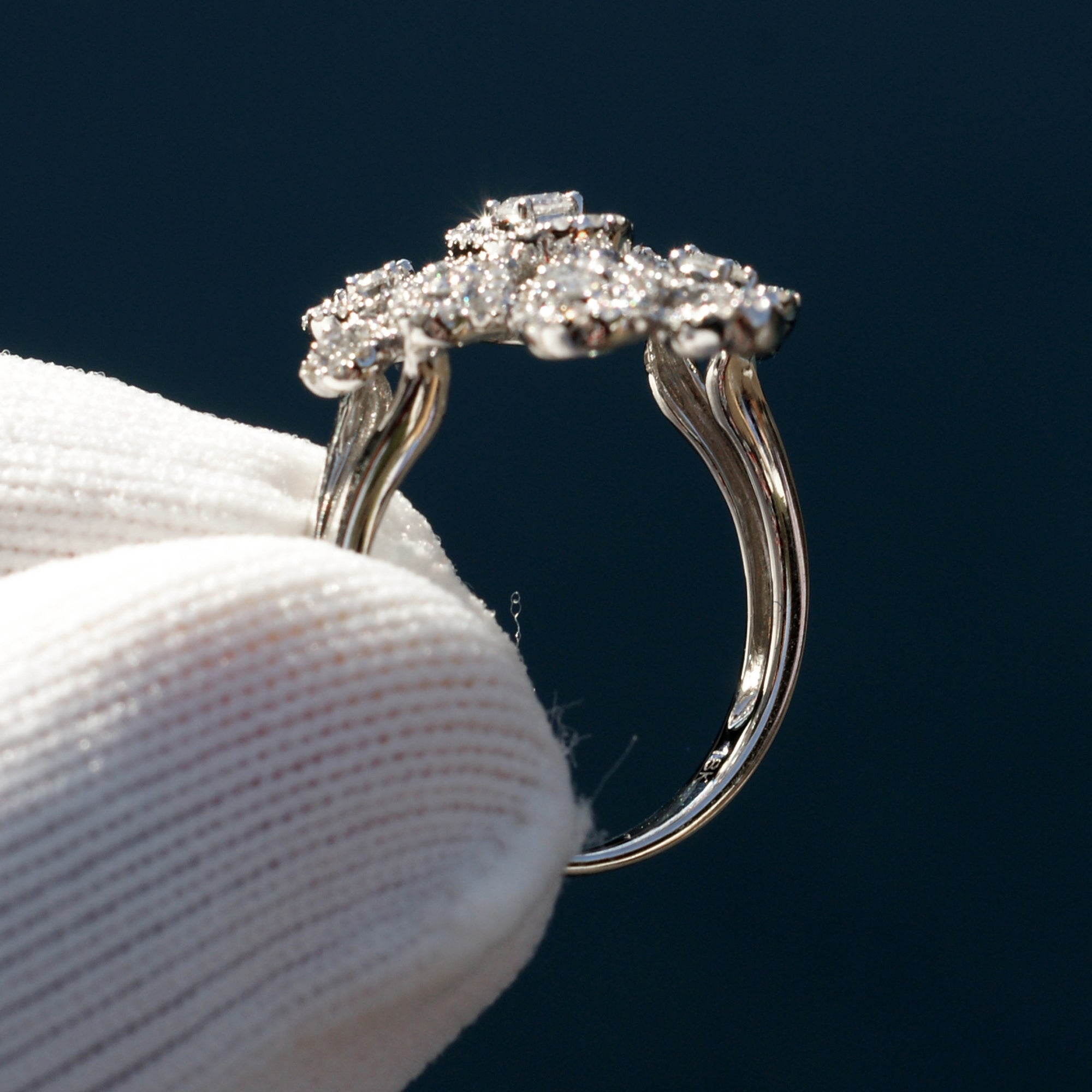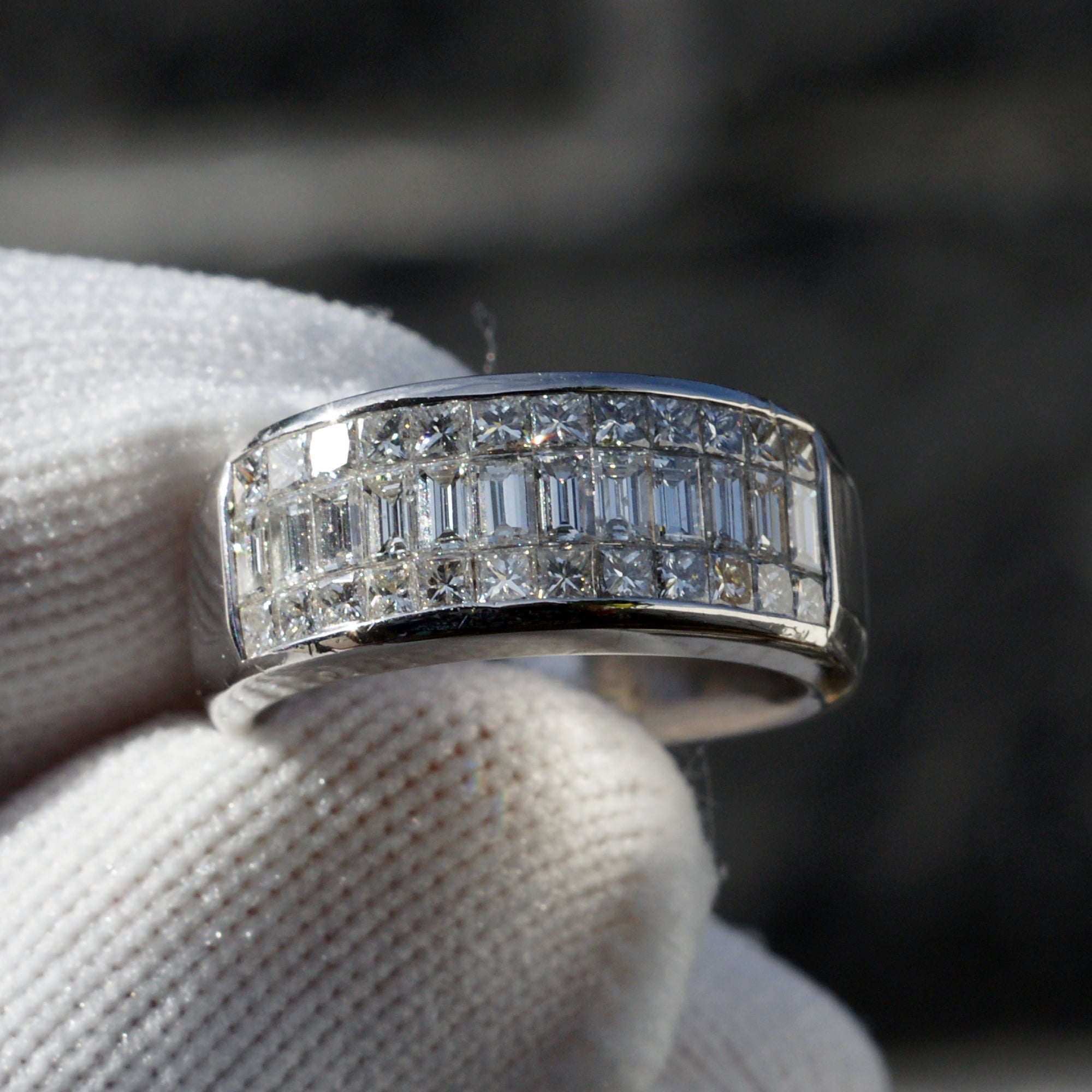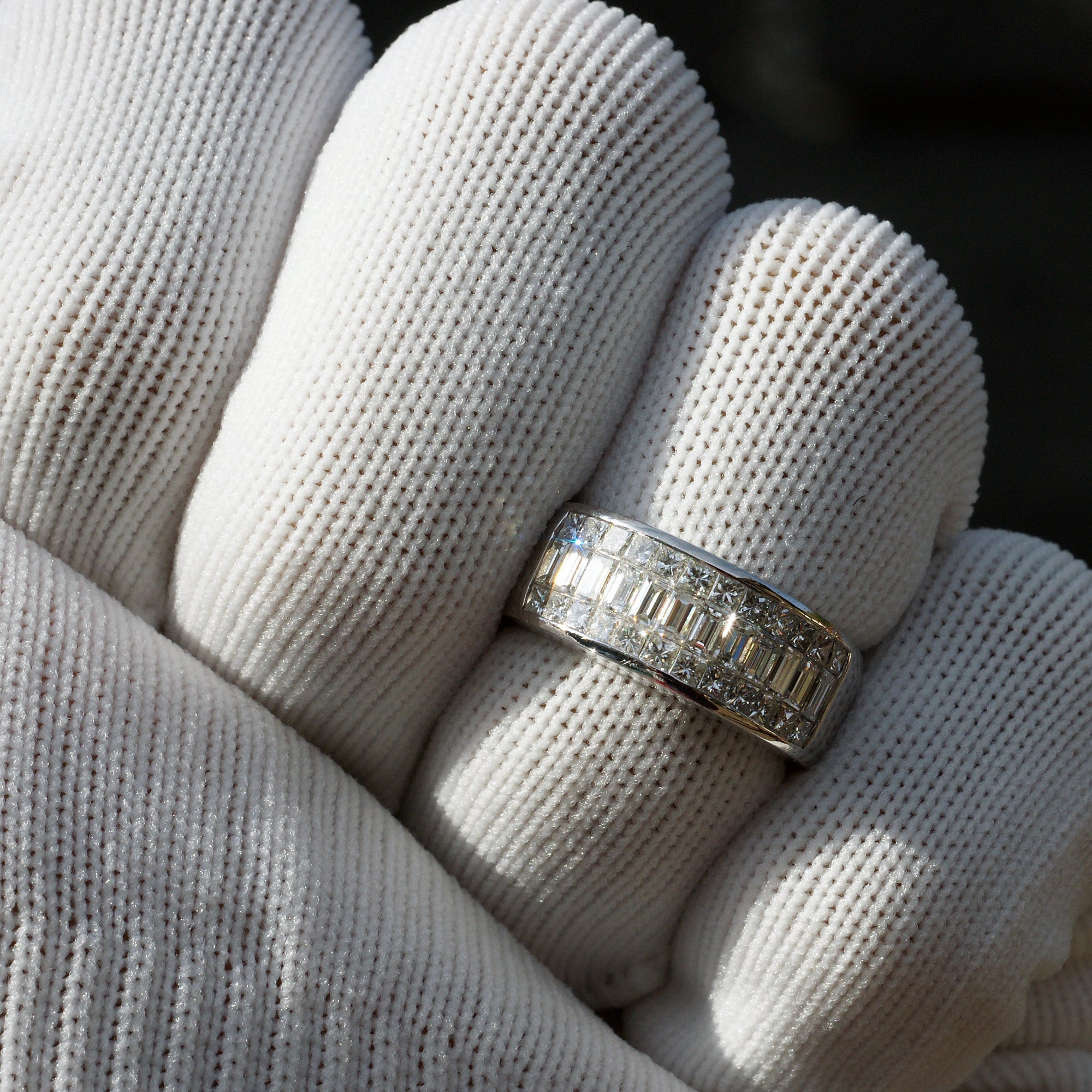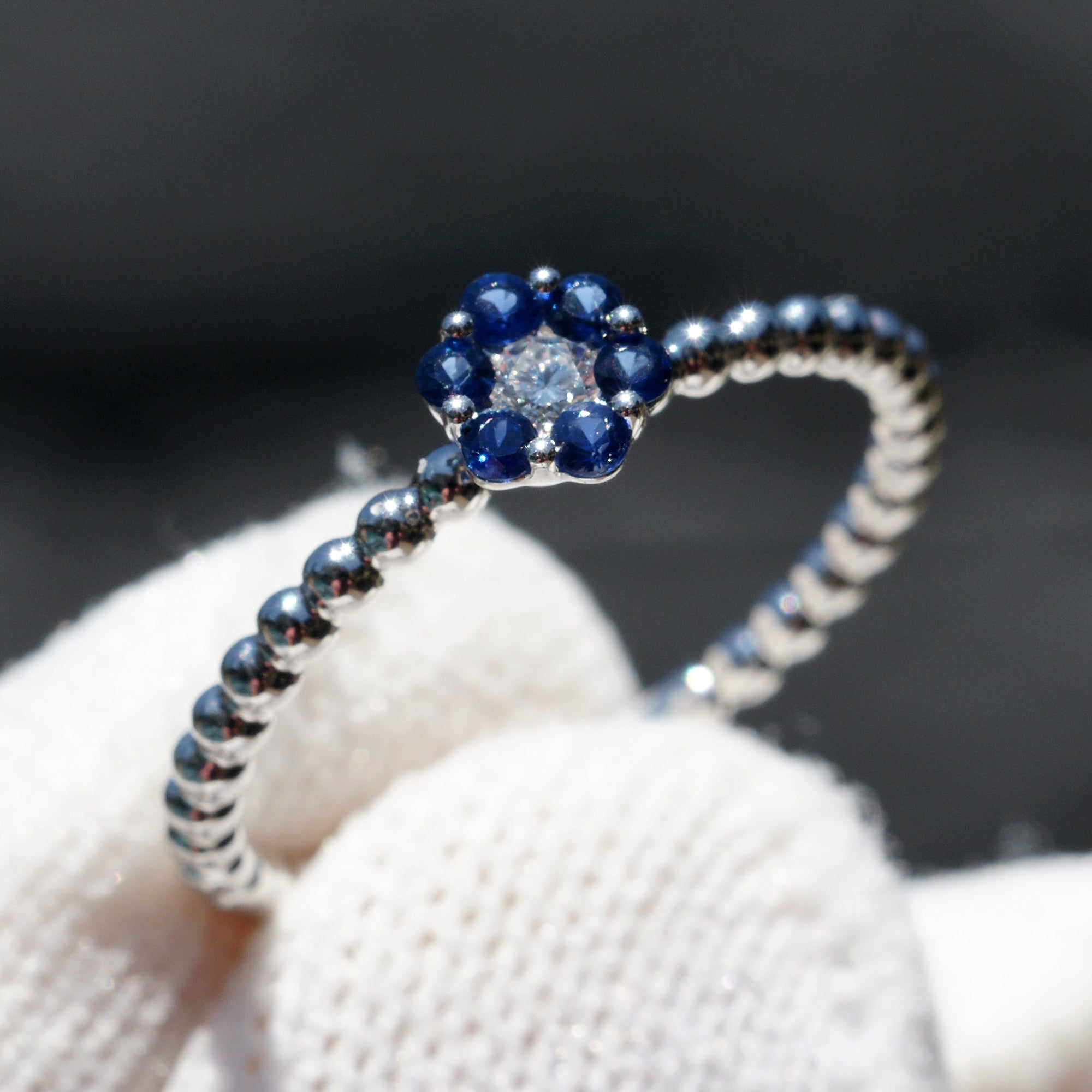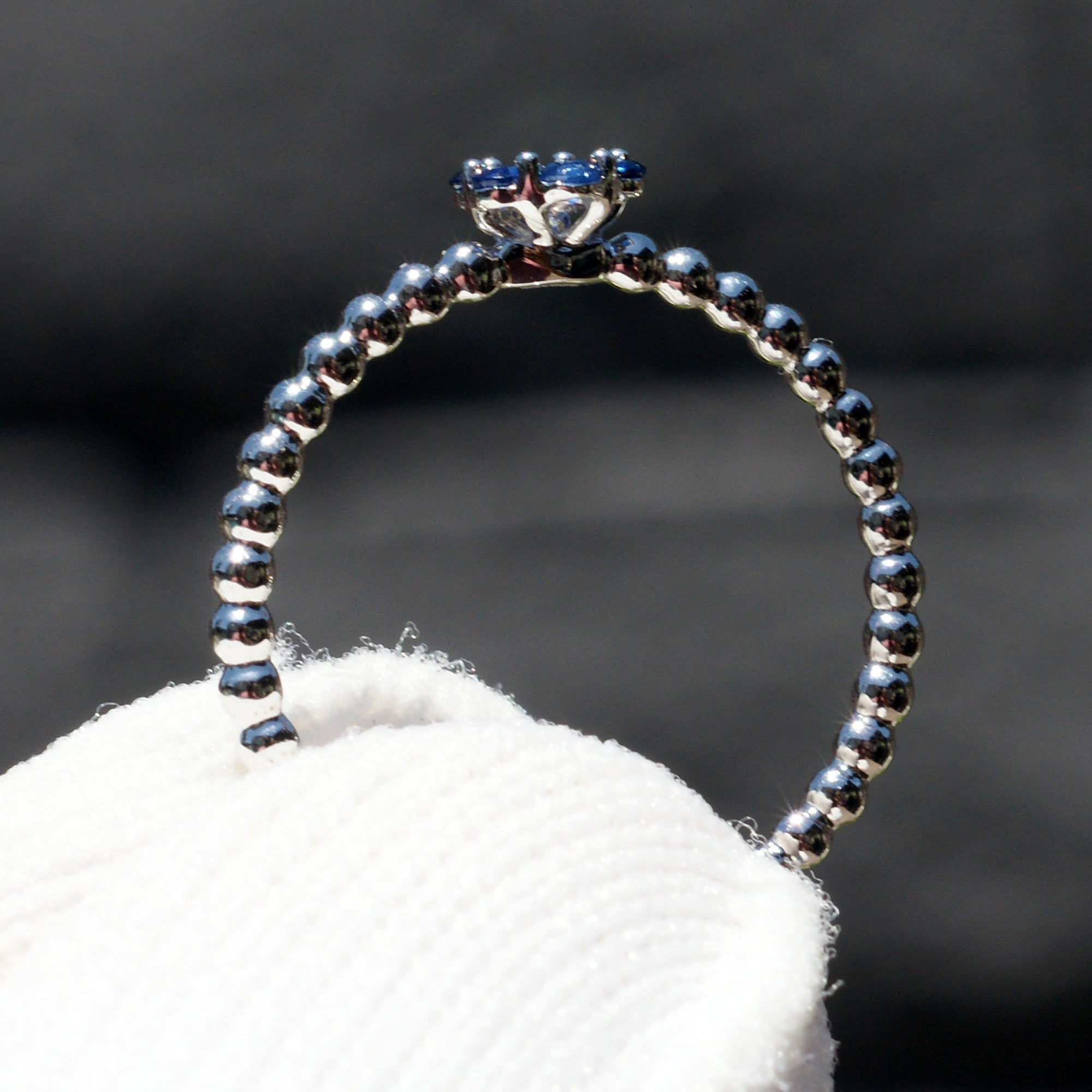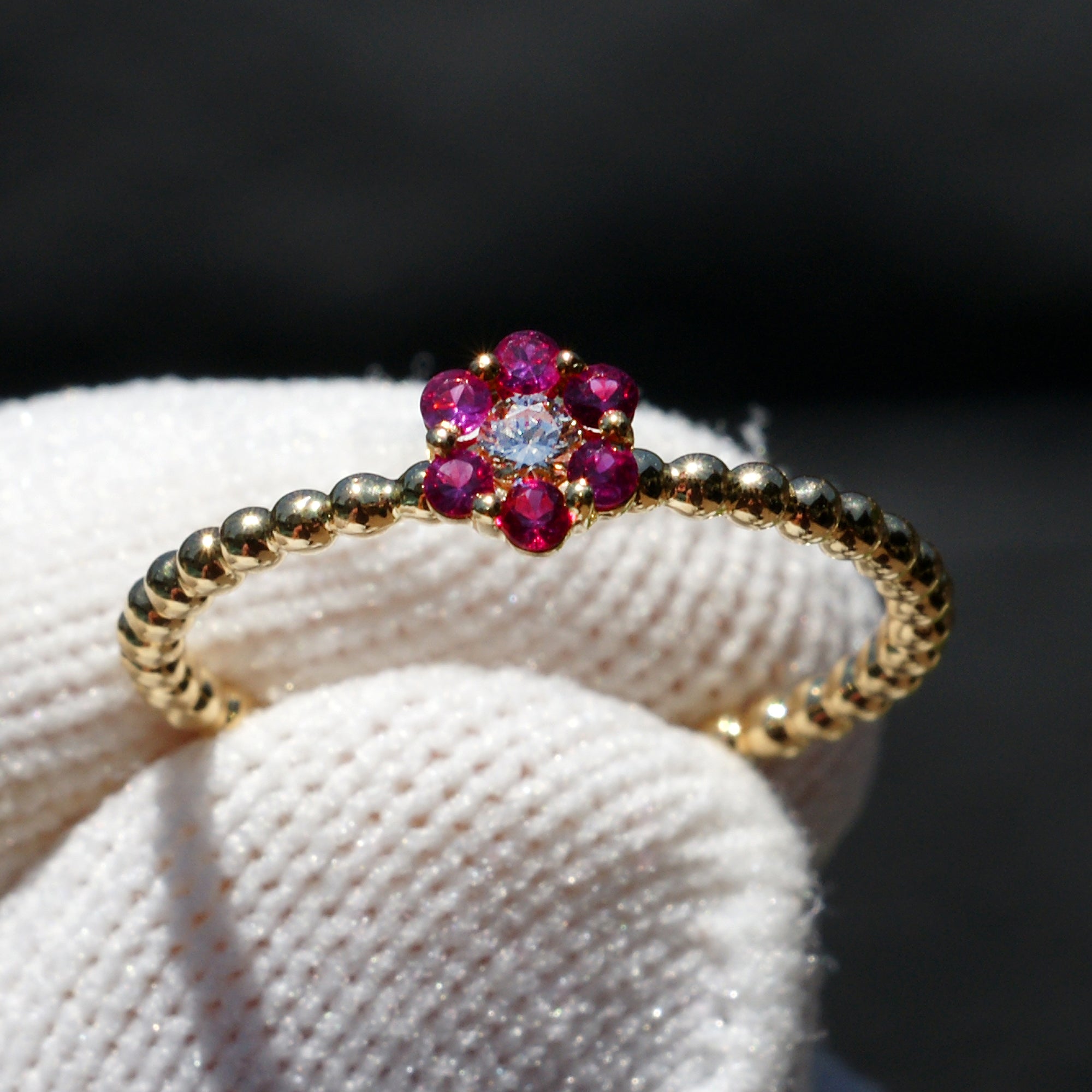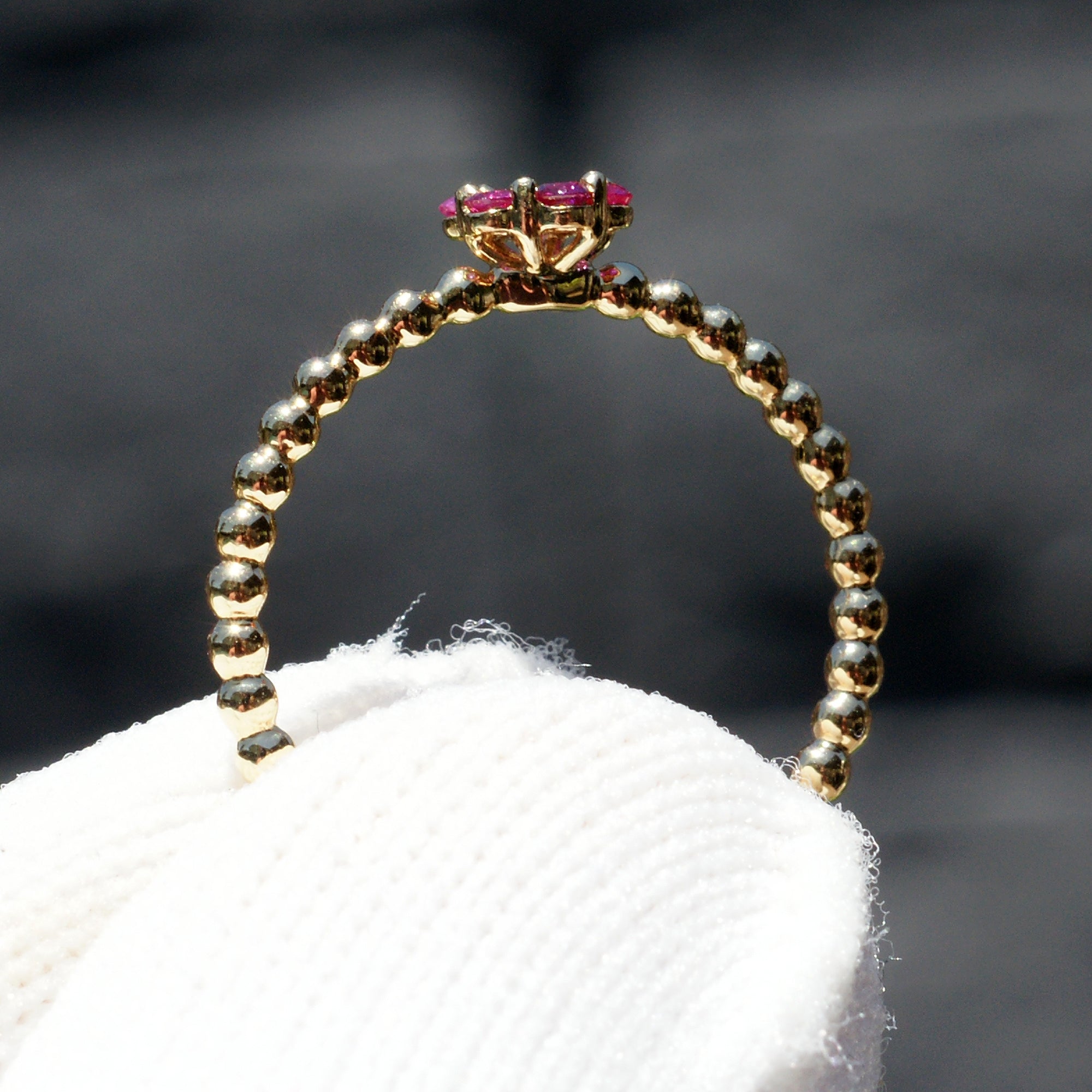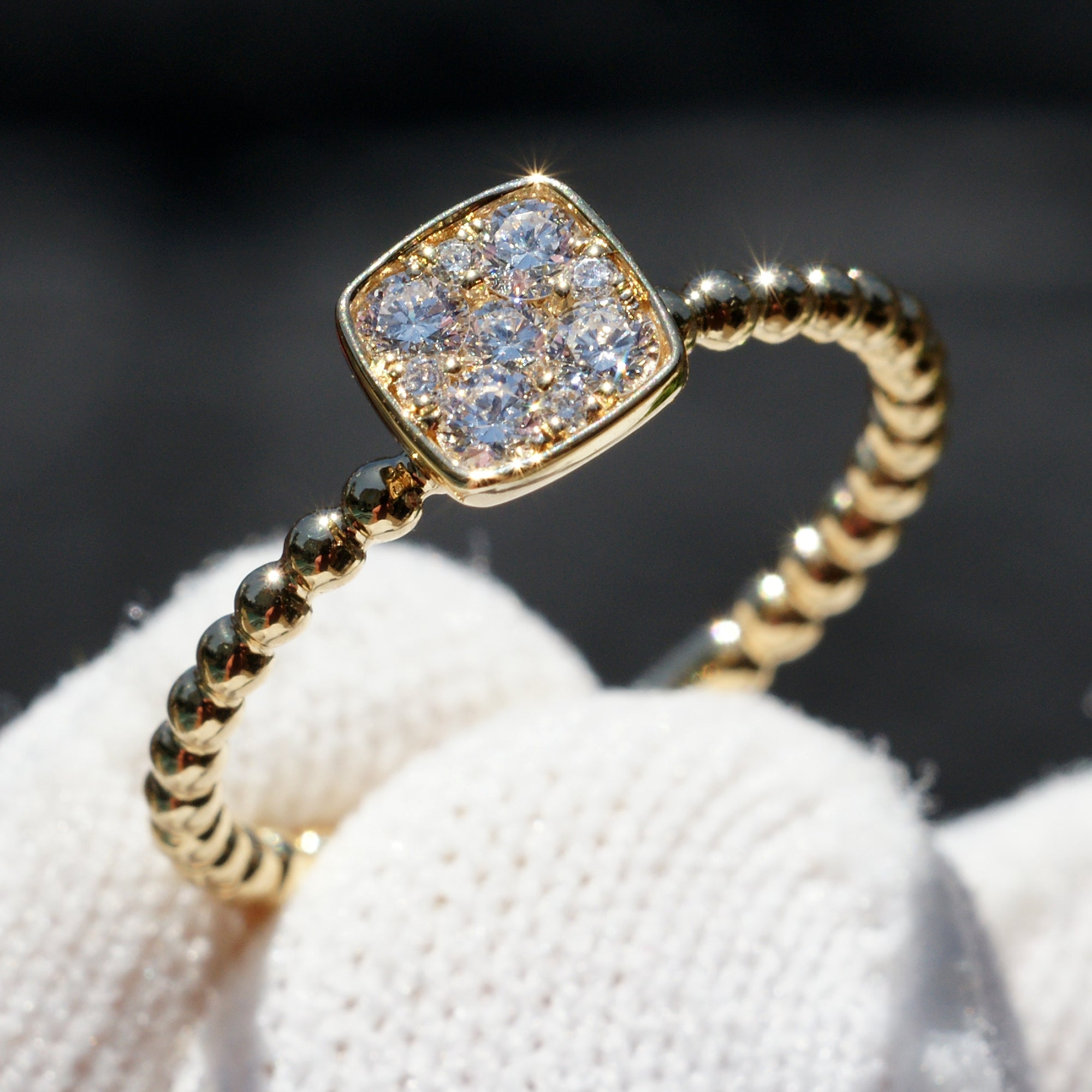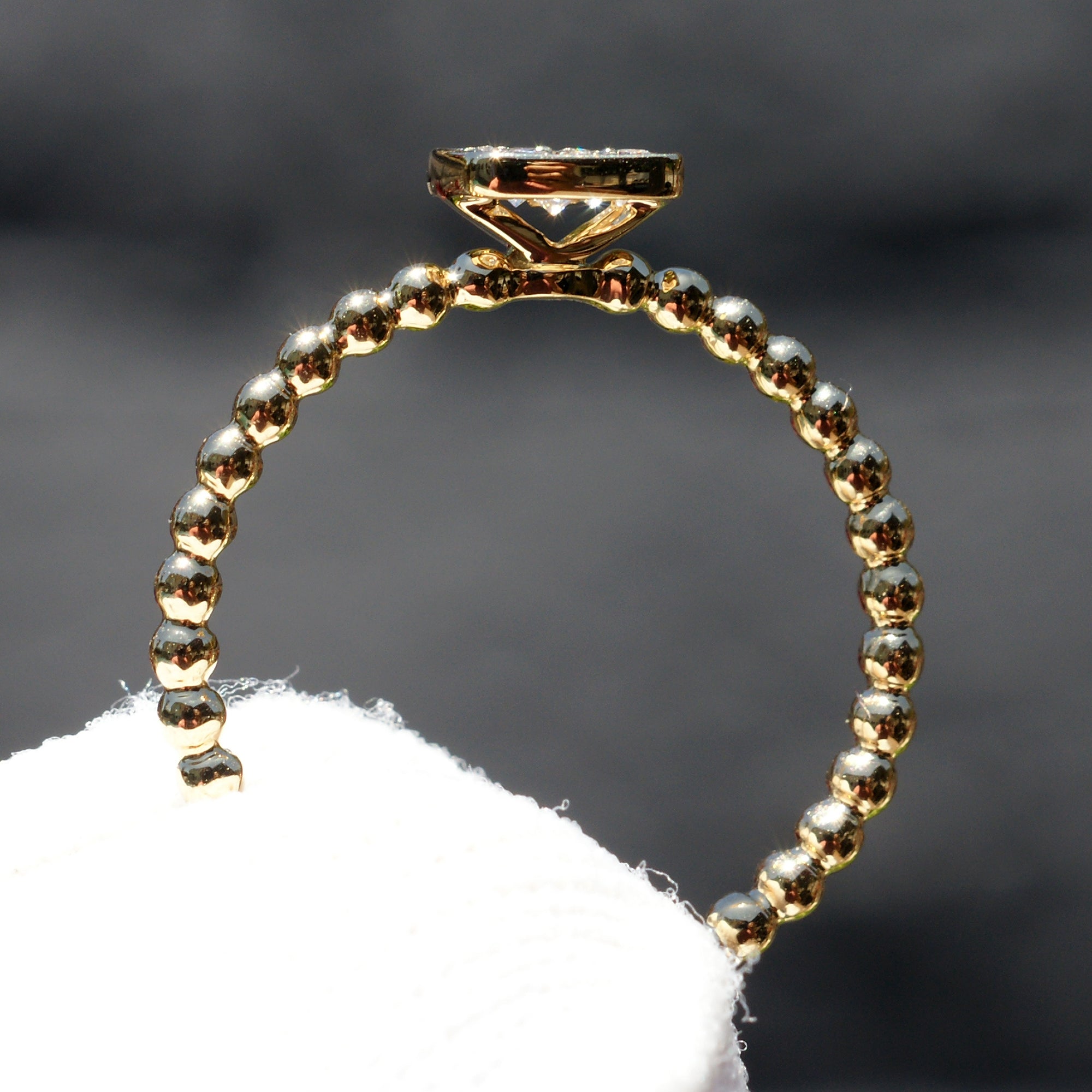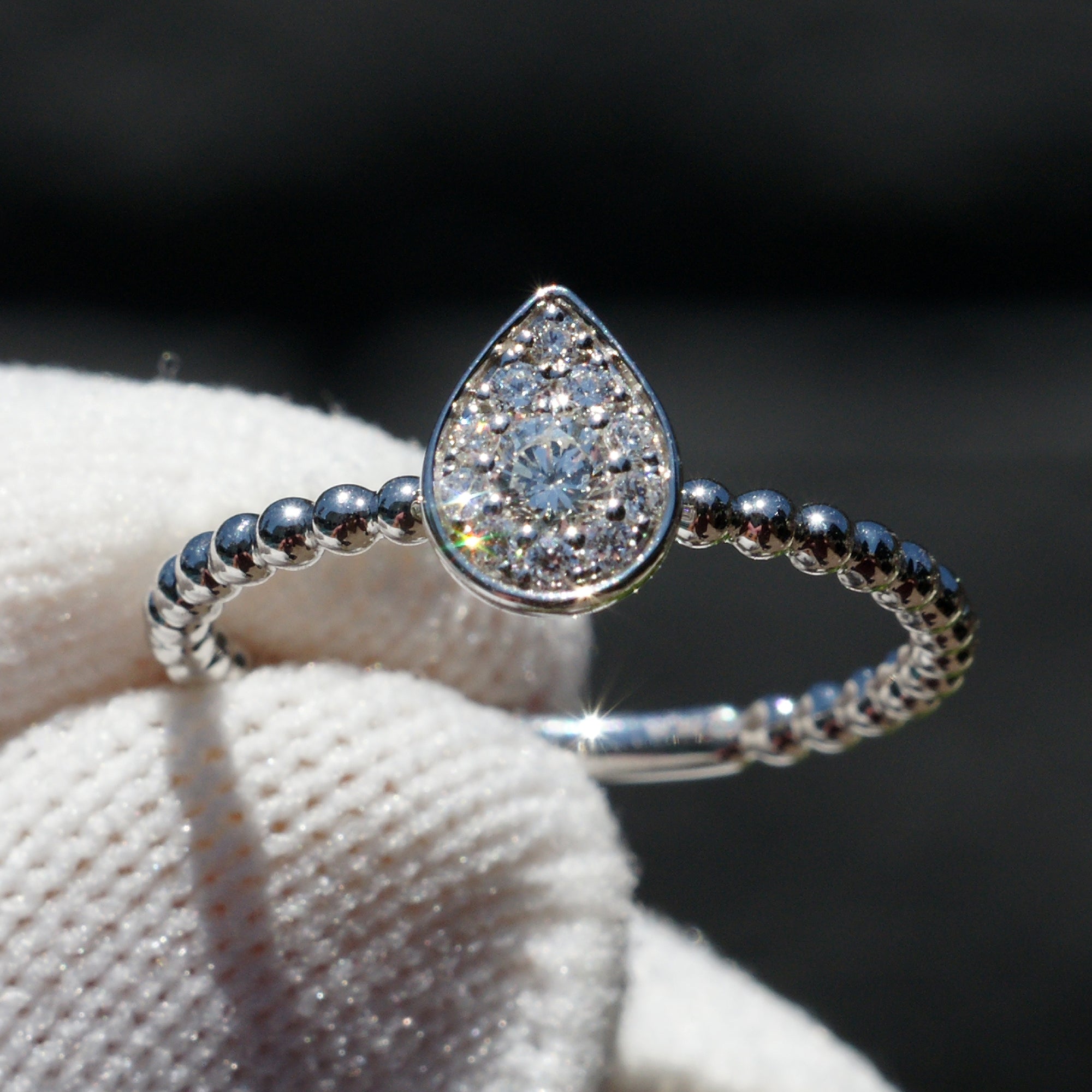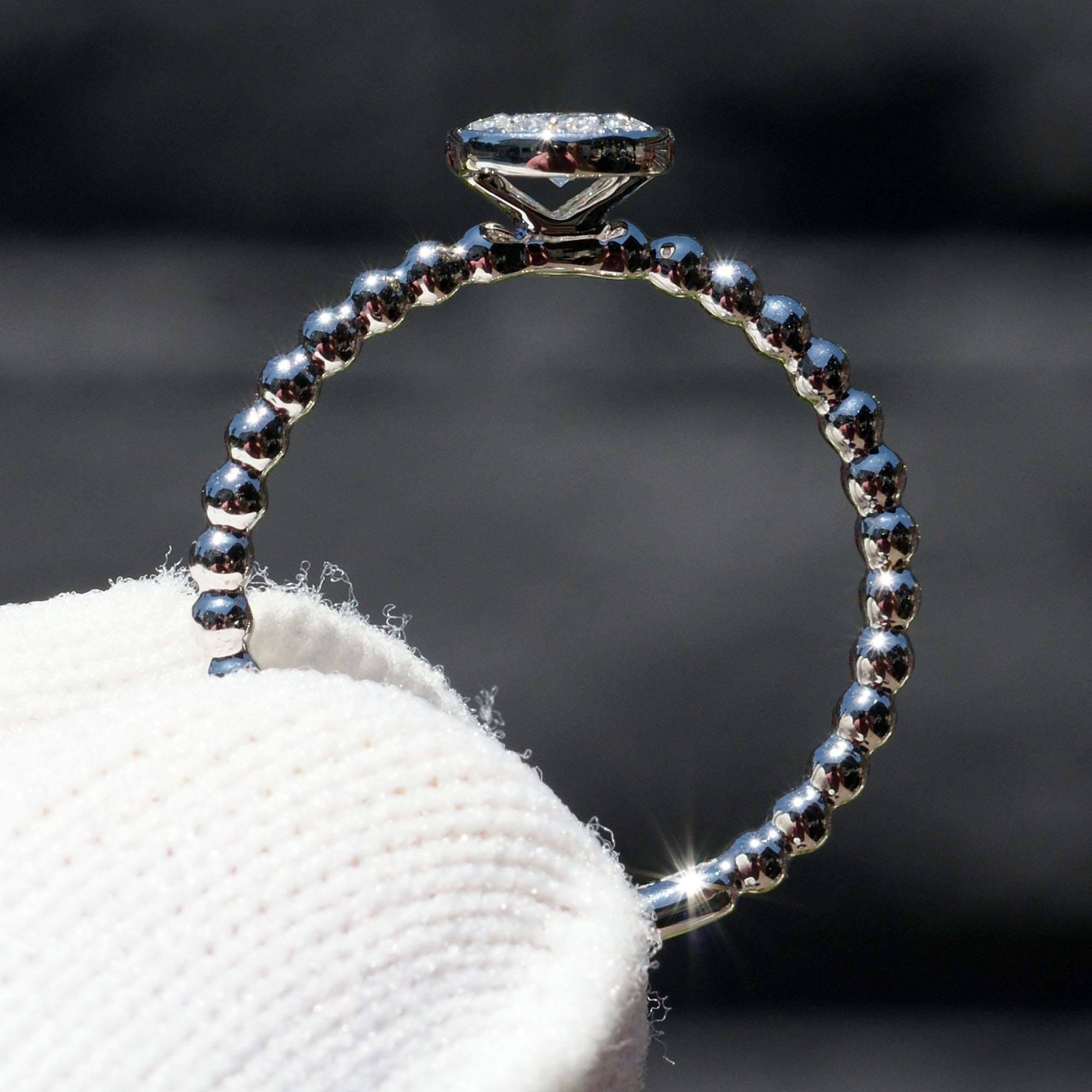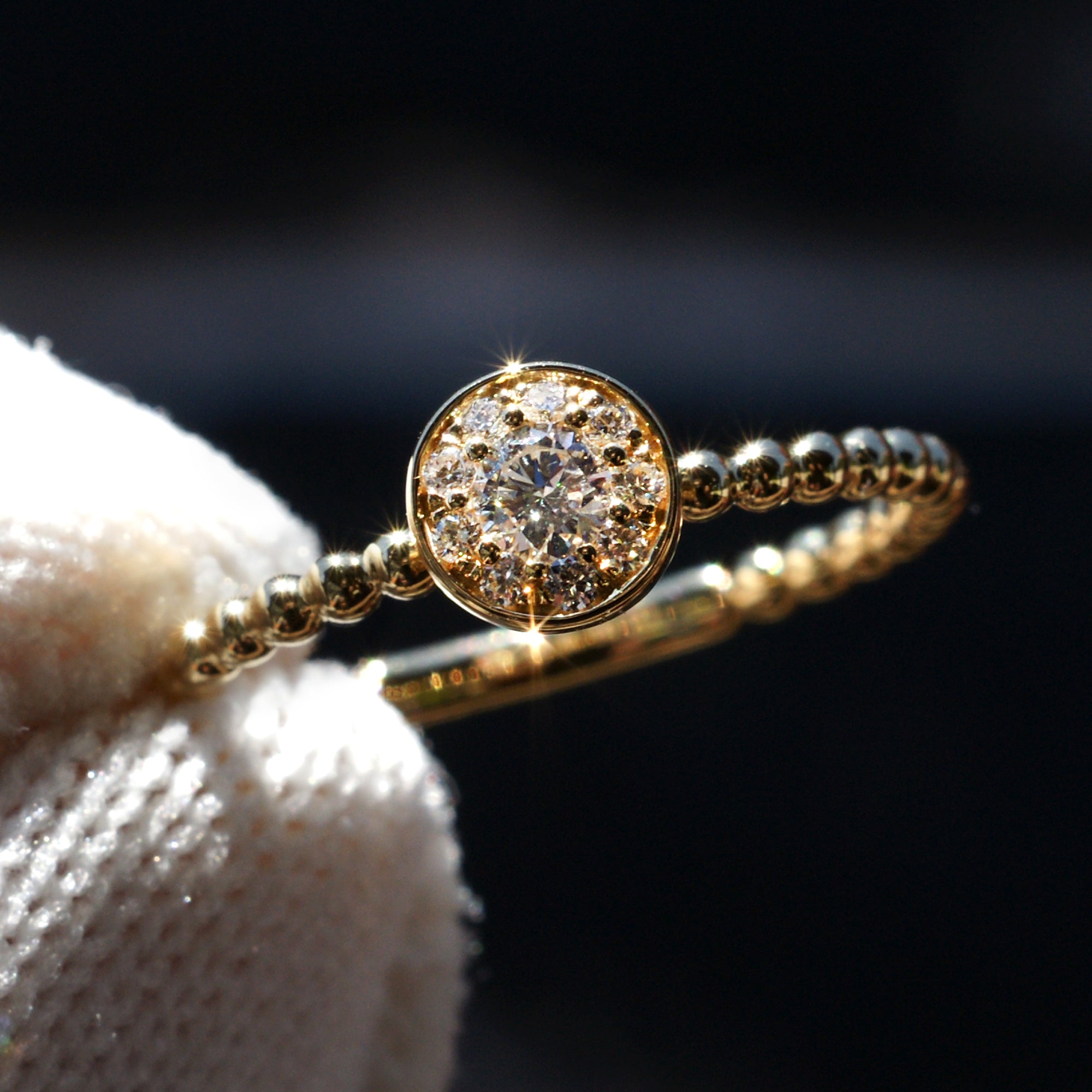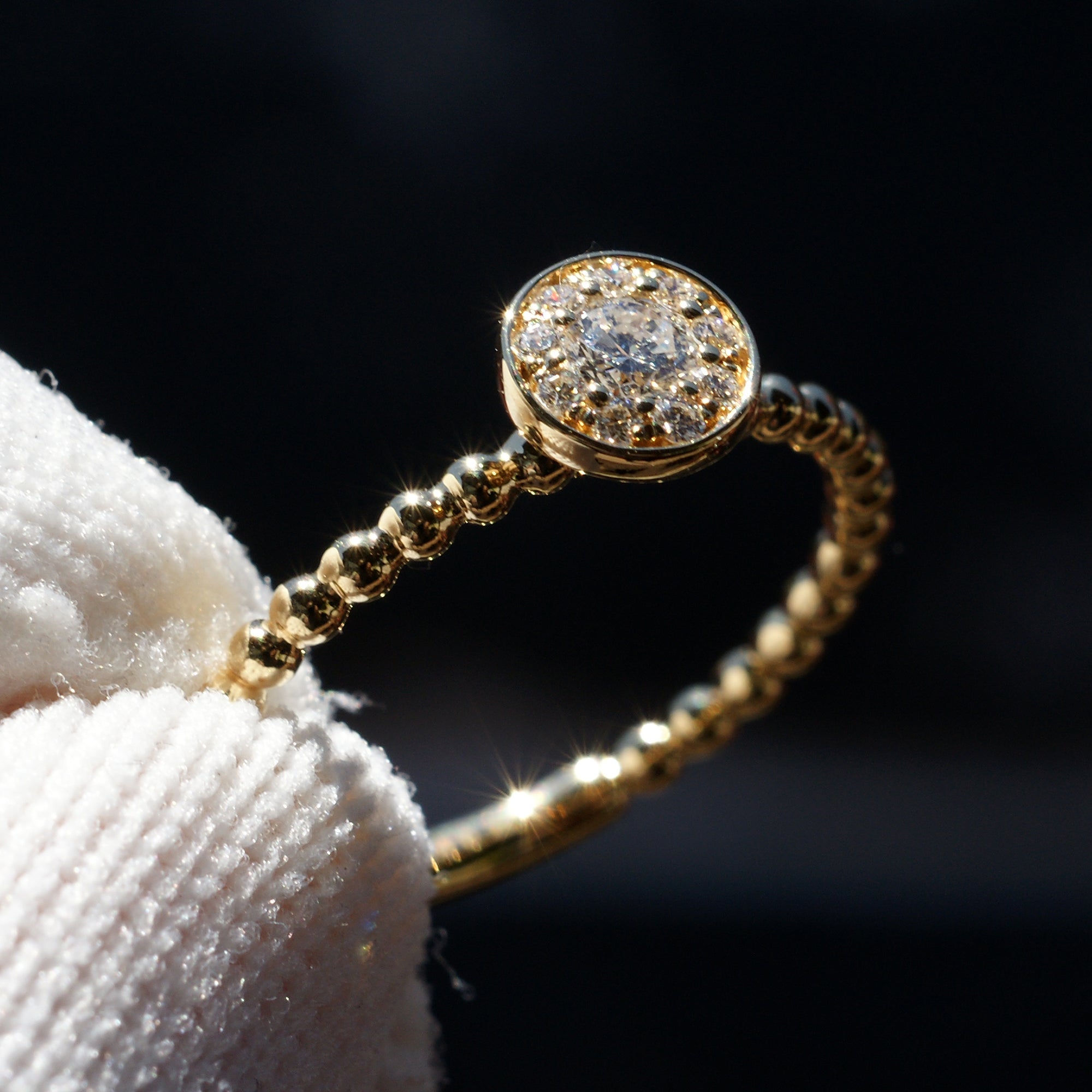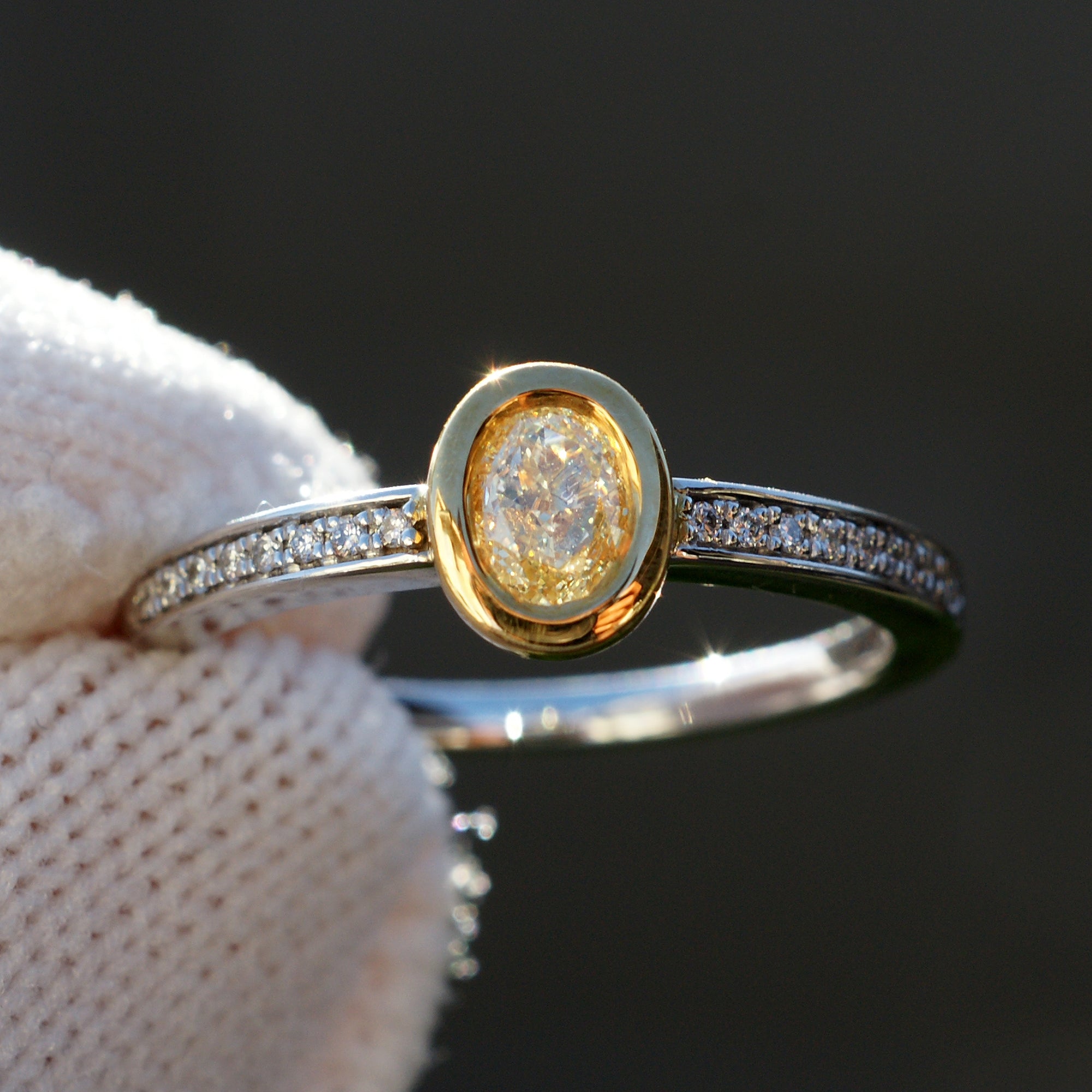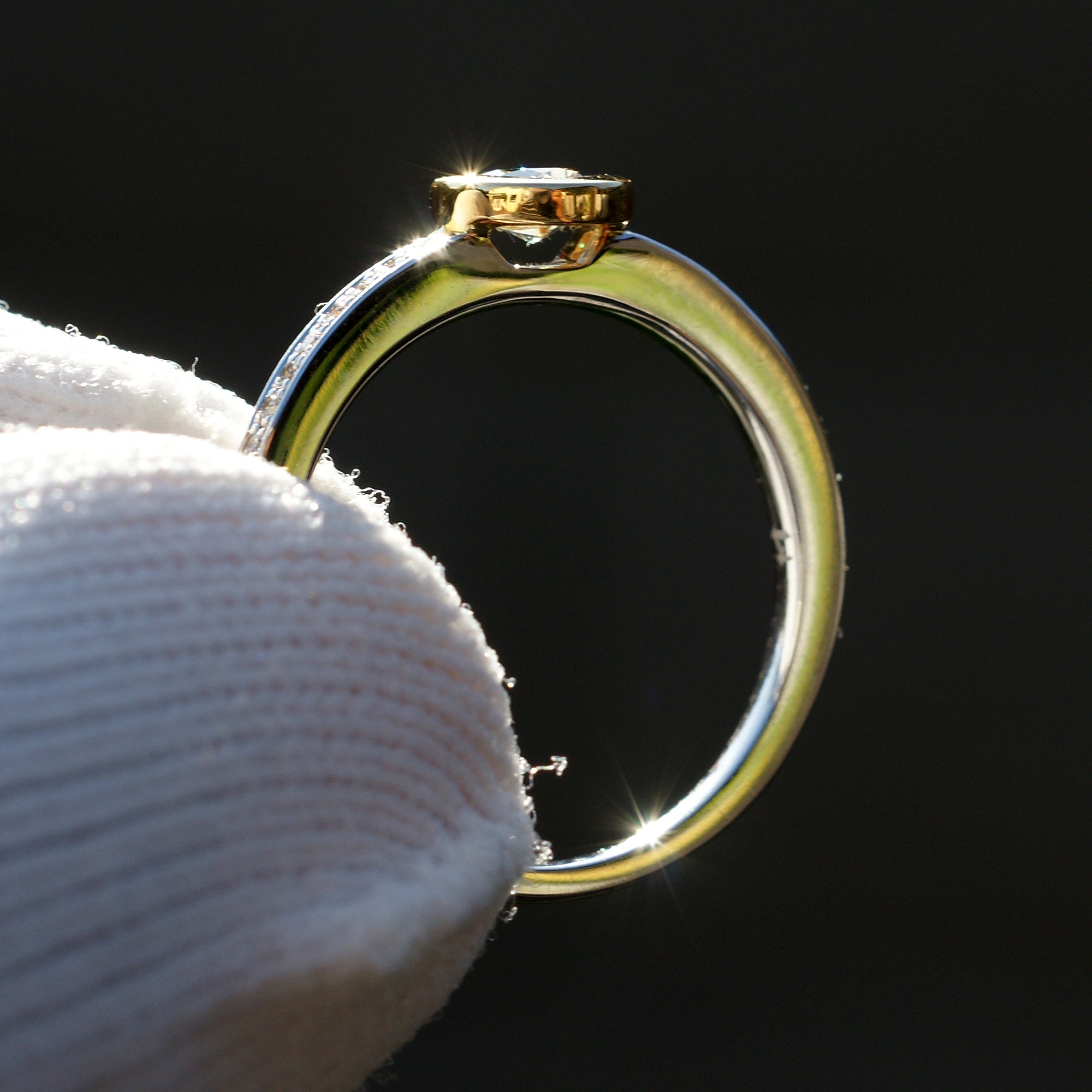Filters
All About
Lab-Grown Diamonds
In recent years, lab-grown diamonds have been gaining popularity as a more ethical and sustainable alternative to natural diamonds. Lab-grown diamonds are created in a controlled environment using advanced technological processes that mimic the natural formation of diamonds.
Both lab-grown diamonds and natural diamonds are composed of pure carbon arranged in a crystal lattice structure, resulting in the same chemical formula, which is simply carbon (C). To find a lab grown diamond as one-of-a-kind as you are, begin by browsing our selection of shapes: from round to oval, cushion, pear, emerald-cut, radiant or princess. (for other shapes, contact us)
Which size should I choose?
When choosing a diamond shape, it's important to consider the style and personality of the wearer, as well as the setting and type of jewelry. Each shape has its own unique charm and specifications that can enhance the beauty and character of a piece.
The size of the diamond you should buy will depend on your personal taste, budget, and the purpose of the diamond. Here are a few factors to consider when choosing a diamond size:
- Budget: The size of the diamond will impact the cost, so it's important to determine your budget before you start shopping. Keep in mind that the cost of a diamond will increase significantly as the carat weight increases.
- Purpose: Consider the purpose of the diamond, whether it's for an engagement ring, pendant, or earrings. For an engagement ring, the size of the diamond is often an important factor, but for other types of jewelry, a smaller diamond may be more appropriate.
- Finger size: The size of the diamond can impact the appearance of the ring on your finger. A larger diamond may overwhelm a smaller hand or look out of proportion on a slender finger, so it's important to consider the size and shape of your finger when choosing a diamond.
- Style: The style of the jewelry can also impact the size of the diamond. For example, a more intricate or ornate setting may be better suited for a smaller diamond, while a simpler setting may be able to showcase a larger diamond.
- Personal taste: Ultimately, the size of the diamond you choose will come down to your personal taste and what you find most appealing.
It's important to remember that the size of the diamond is just one factor in its overall value and beauty. A smaller, high-quality diamond can be just as stunning and valuable as a larger, lower-quality diamond. When choosing a diamond, be sure to also consider its cut, color, and clarity, as these factors can also impact its overall beauty and value.
Lab-Grown Diamonds
Frequently Asked Questions
FAQ
In practice, the terms "lab-grown diamonds" and "lab-created diamonds" are often used interchangeably, and they both refer to diamonds that are created in a laboratory setting using a controlled environment.
Both lab-grown diamonds and lab-created diamonds share the same chemical composition, physical properties, and optical characteristics as natural diamonds, as they are made of pure carbon atoms arranged in a crystal lattice structure.
To ensure our esteemed customers make an ideal selection and avoid the risk of acquiring a subpar diamond, samNsue takes the initiative of handpicking the perfect diamond for them, based on your chosen size. Employing our expertise, we meticulously select diamonds with exceptional cut, brilliance, and a minimum F color and VS1 clarity. This bespoke approach guarantees that our customers receive nothing short of the finest quality, leaving them with complete confidence in their purchase.
Choosing to buy your ring from a family business can be a wonderful and meaningful decision that offers several compelling advantages. Let me convince you why purchasing your ring from samNsue is a fantastic choice:
- Personal Touch: We prioritize building strong relationships with our clients. You'll experience a more personalized and attentive service, with the owners genuinely caring about your satisfaction and making sure you find the perfect ring.
- Expertise and Experience: We have been passed down through generations, and their expertise in the jewelry industry is invaluable. You can trust our knowledge and experience to guide you in making an informed decision about your ring.
- Craftsmanship: We take immense pride in our craft. We are committed to producing high-quality, handcrafted pieces, ensuring that your ring is not only beautiful but also durable and made with attention to detail.
- Supporting Local Economy: By choosing a family-owned business, you contribute to the local economy and support the livelihood of the people in your community. Your purchase has a direct positive impact on our lives.
- Ethical and Transparent Practices: We have a strong sense of ethics and transparency in our operations. We source our materials responsibly and take social and environmental responsibility seriously.
- Customization Options: samNsue offers more flexibility in customization. We can work with you to create a unique and one-of-a-kind ring that reflects your style and preferences perfectly.
- Legacy and Story: Every piece of jewelry from us comes with a unique story and heritage. Owning a ring from samNsue connects you to our legacy and the love and passion poured into our craft.
- Long-Term Relationship: When you buy from us, you're not just making a one-time transaction. You become part of our extended family of customers, and we will be here for you for any future jewelry needs.
- Empowering Small Business: Supporting a family business empowers small entrepreneurs, allowing them to thrive and continue their legacy, which contributes to a diverse and vibrant marketplace.
See what's in stock and ready to ship in
